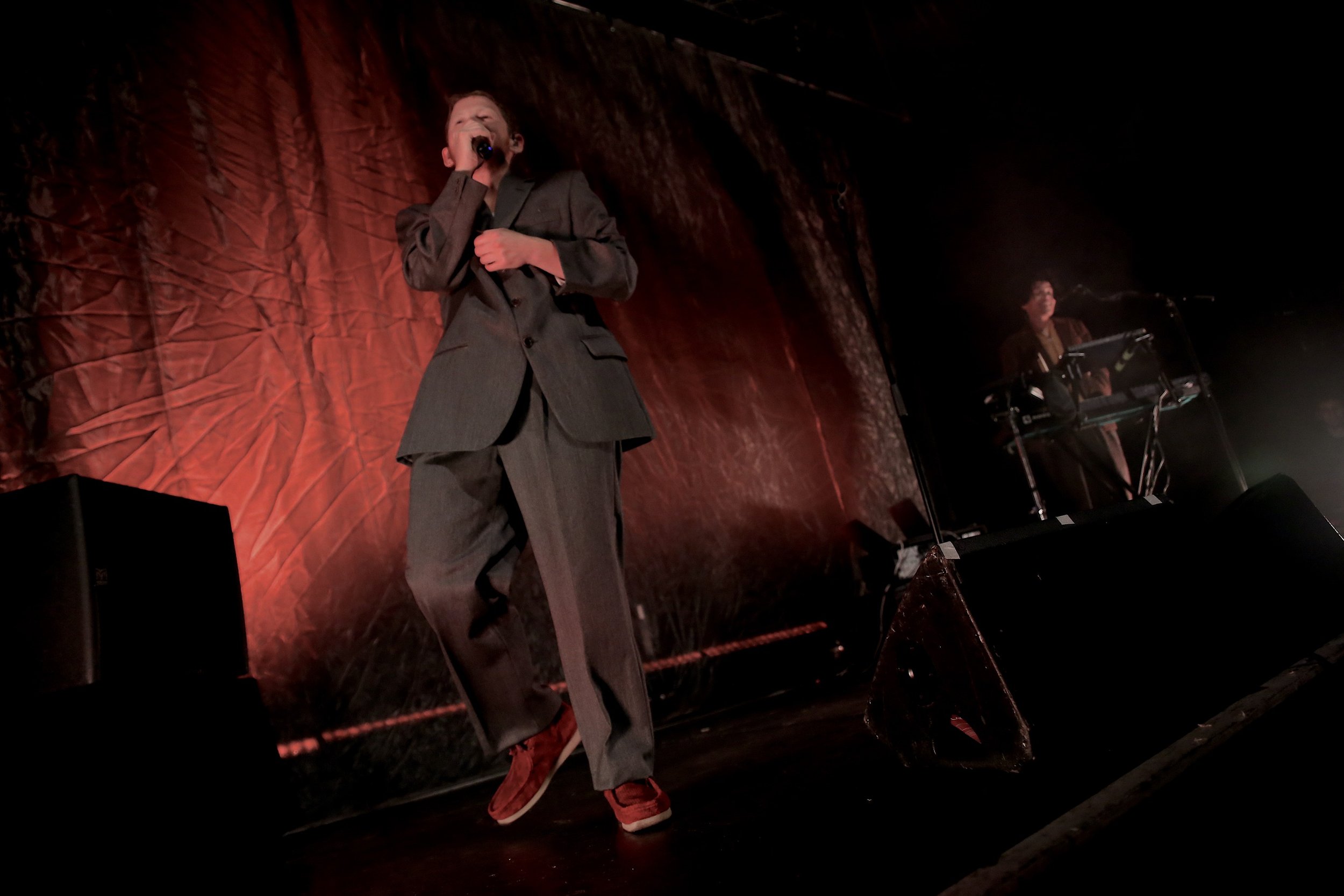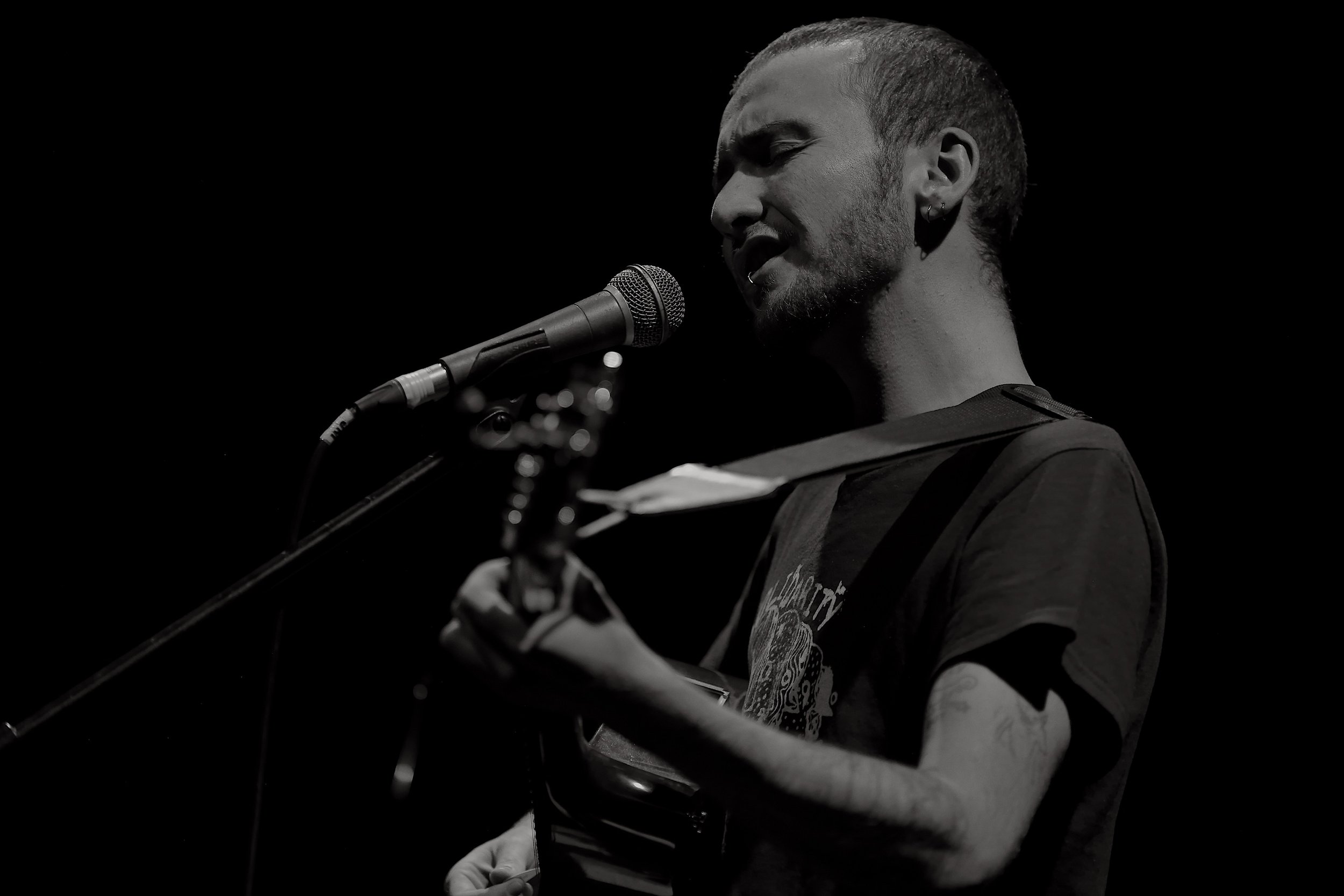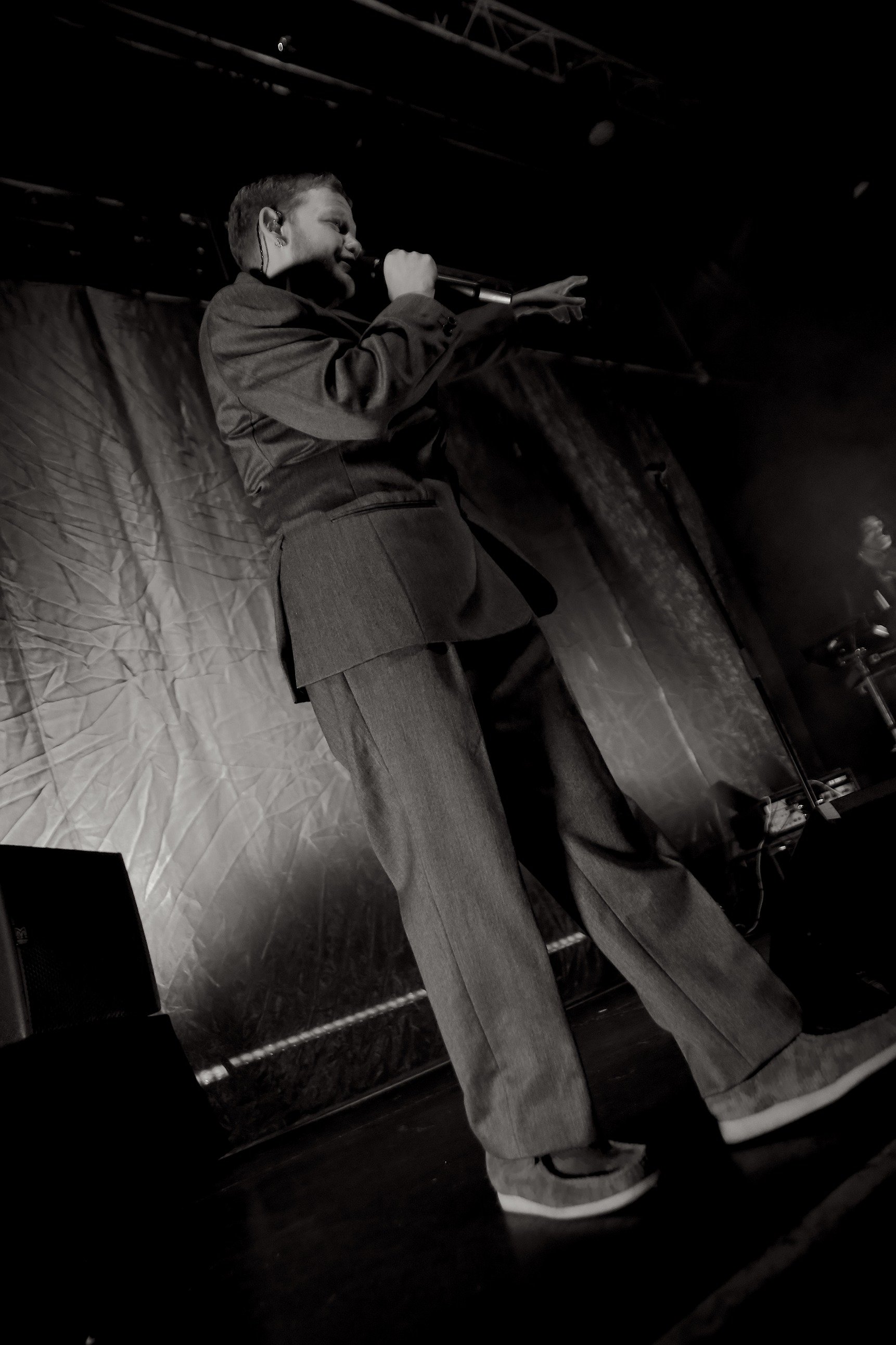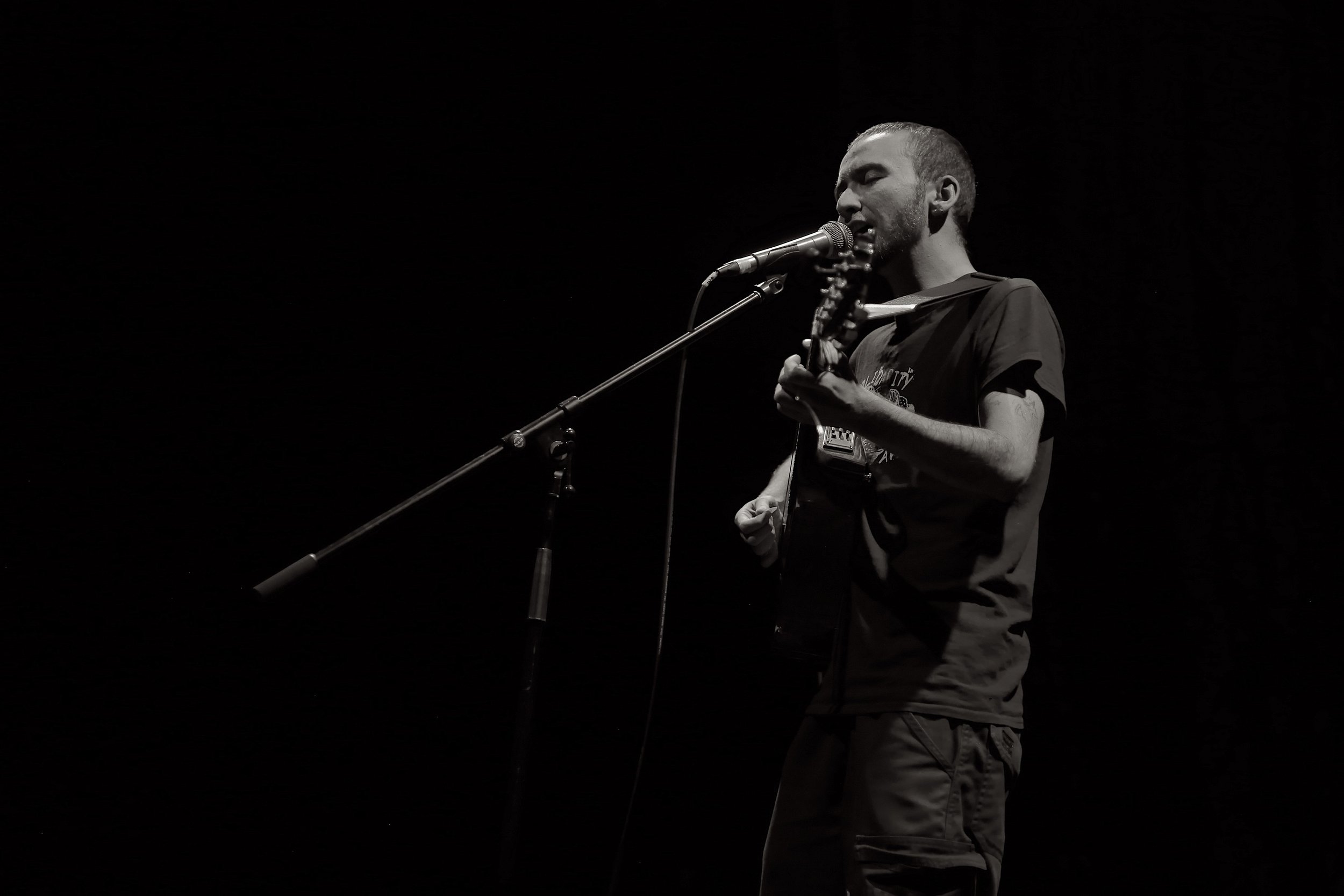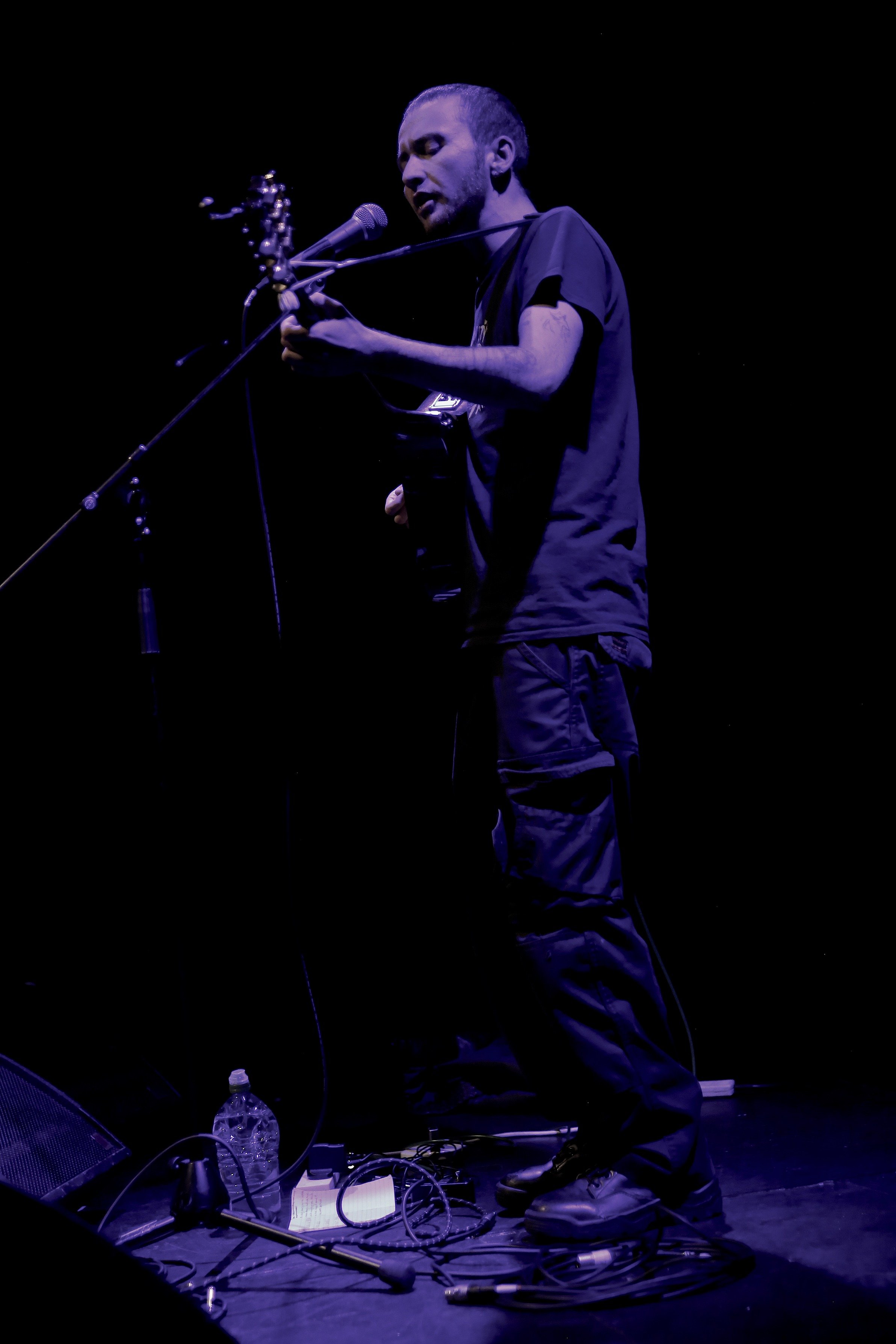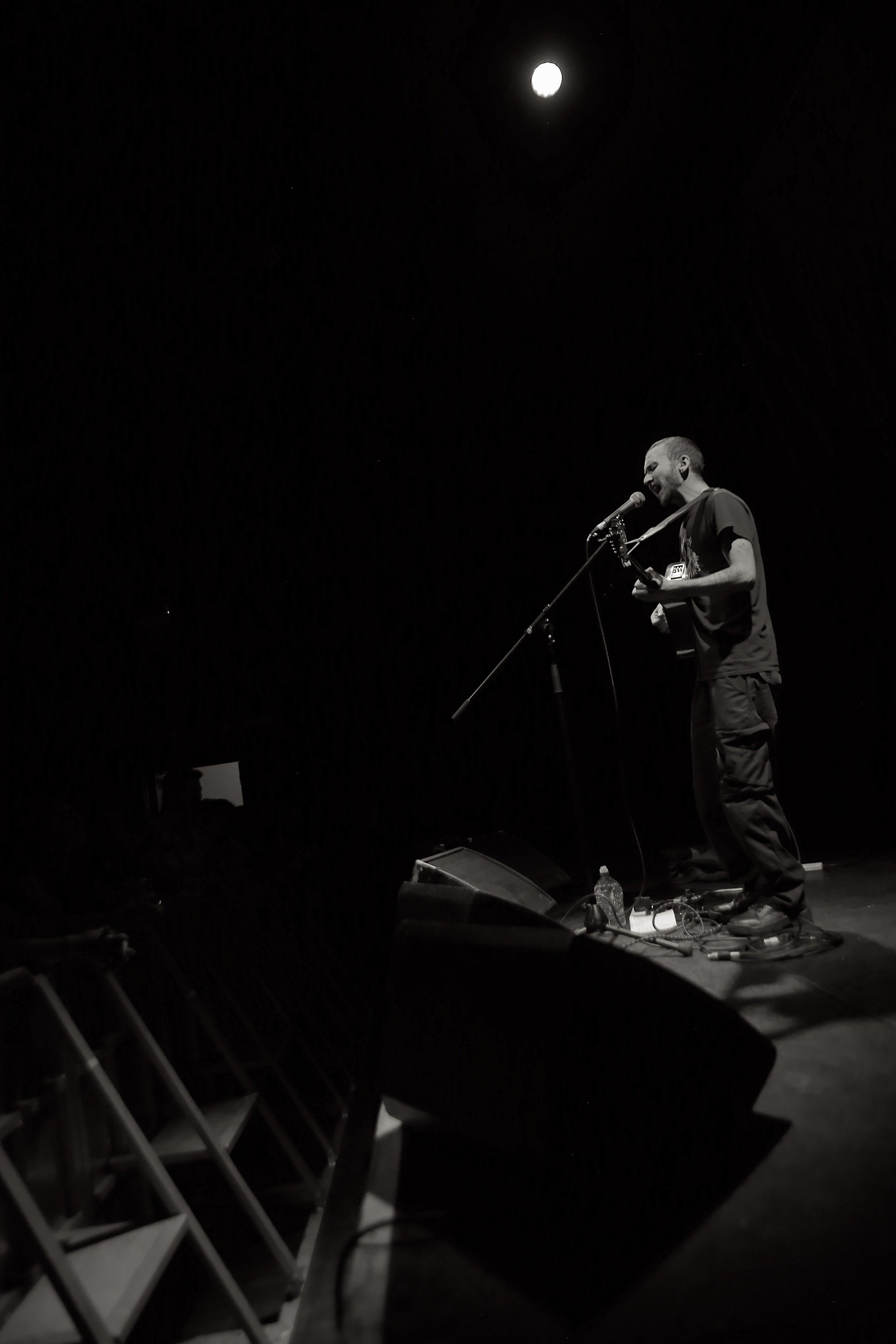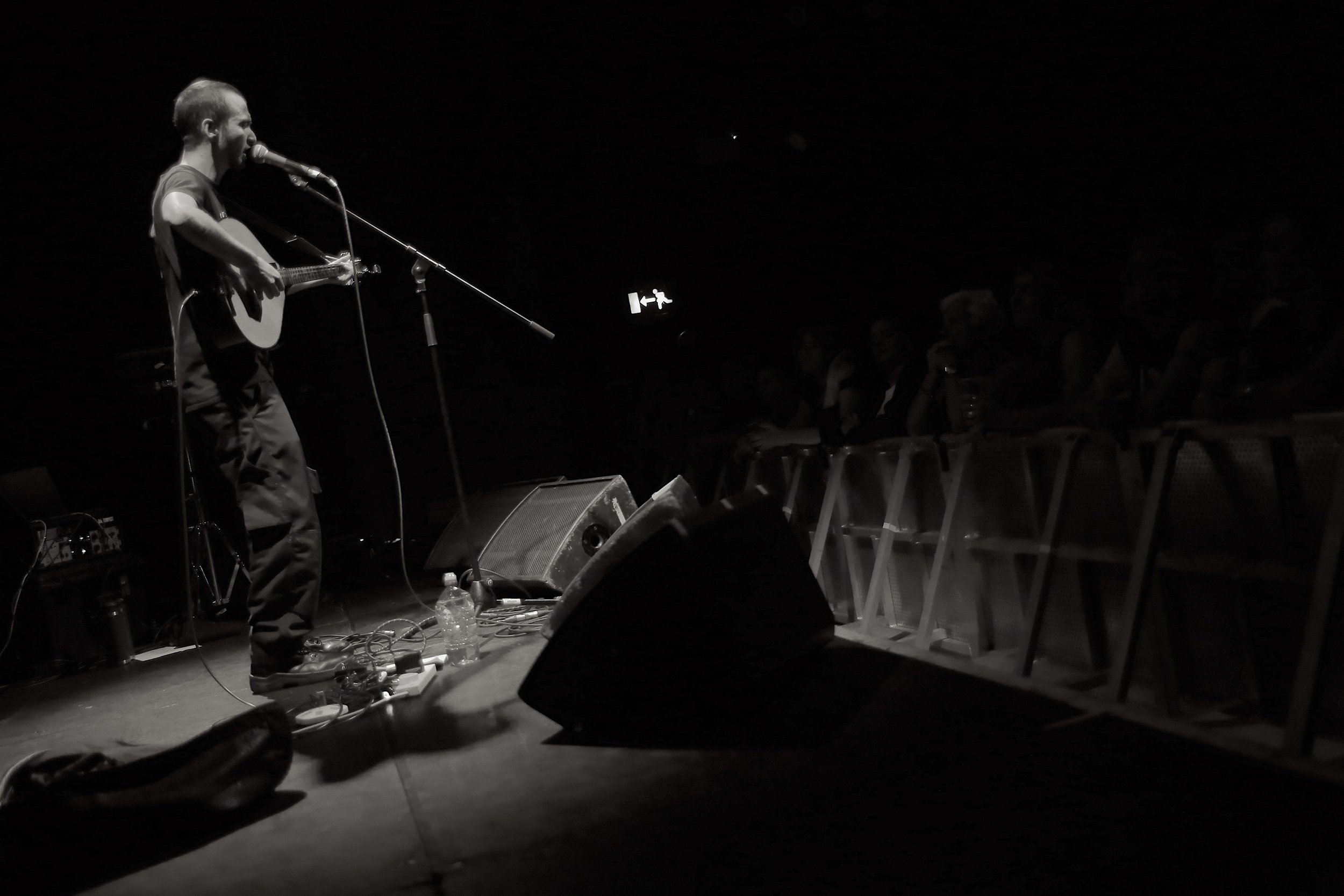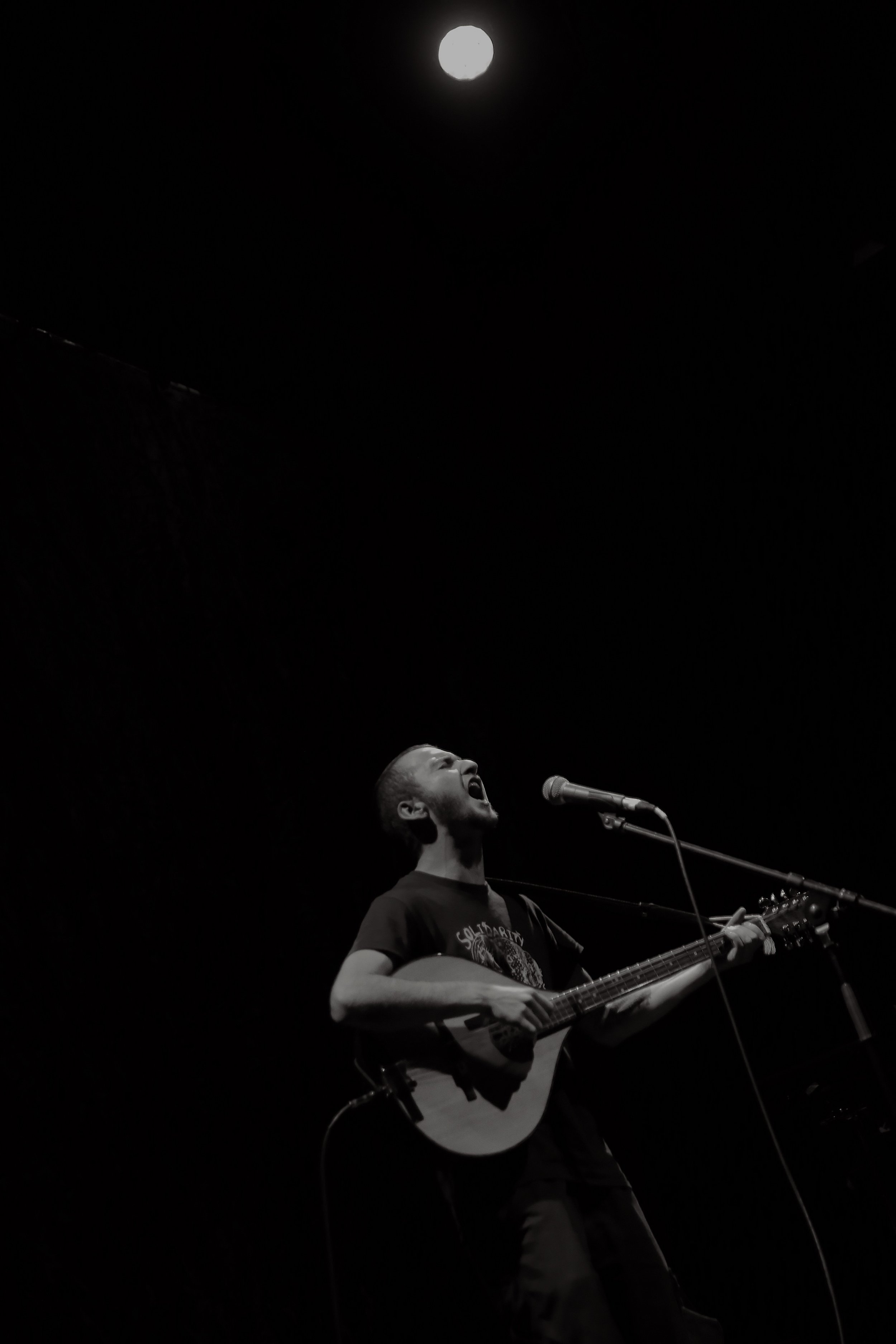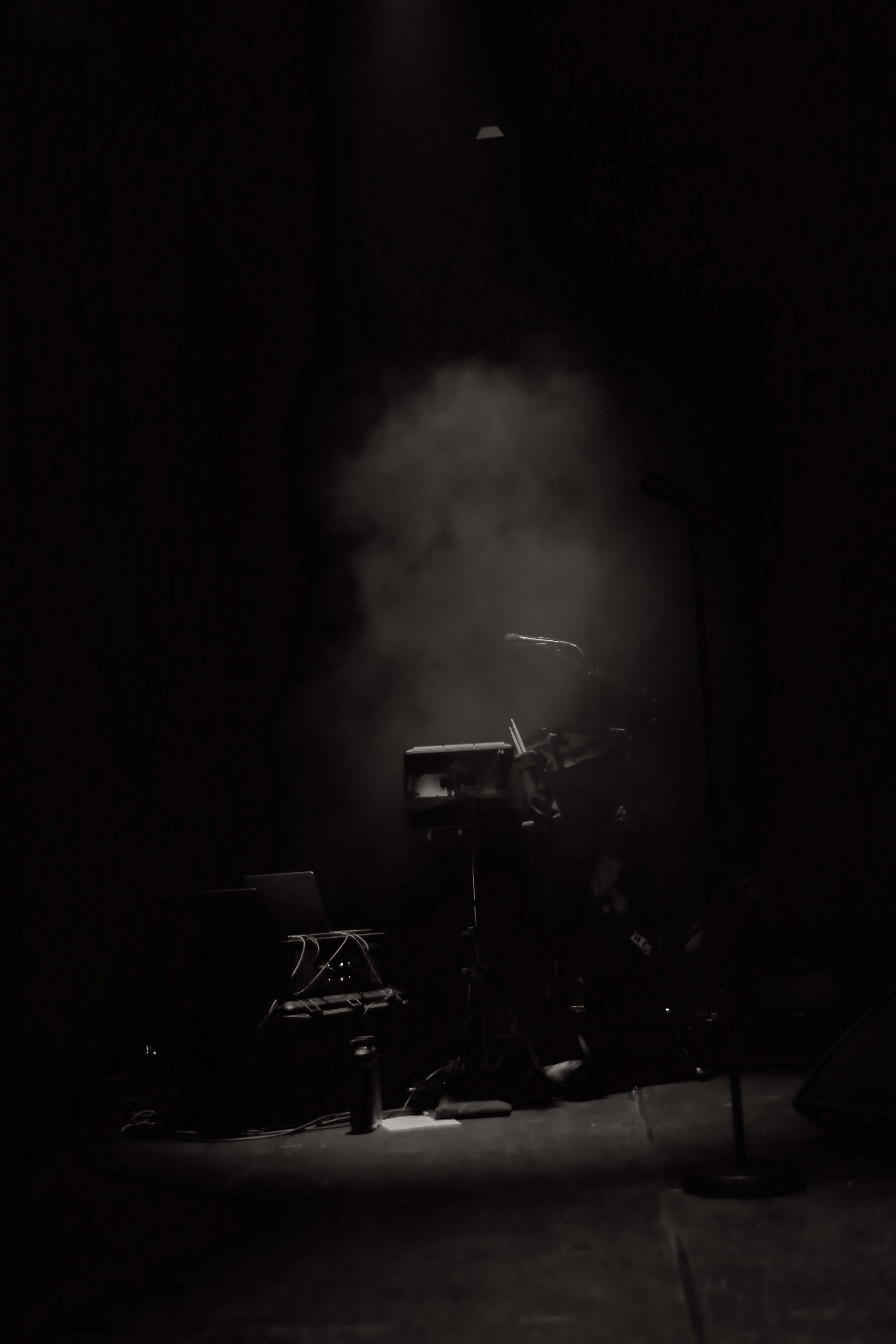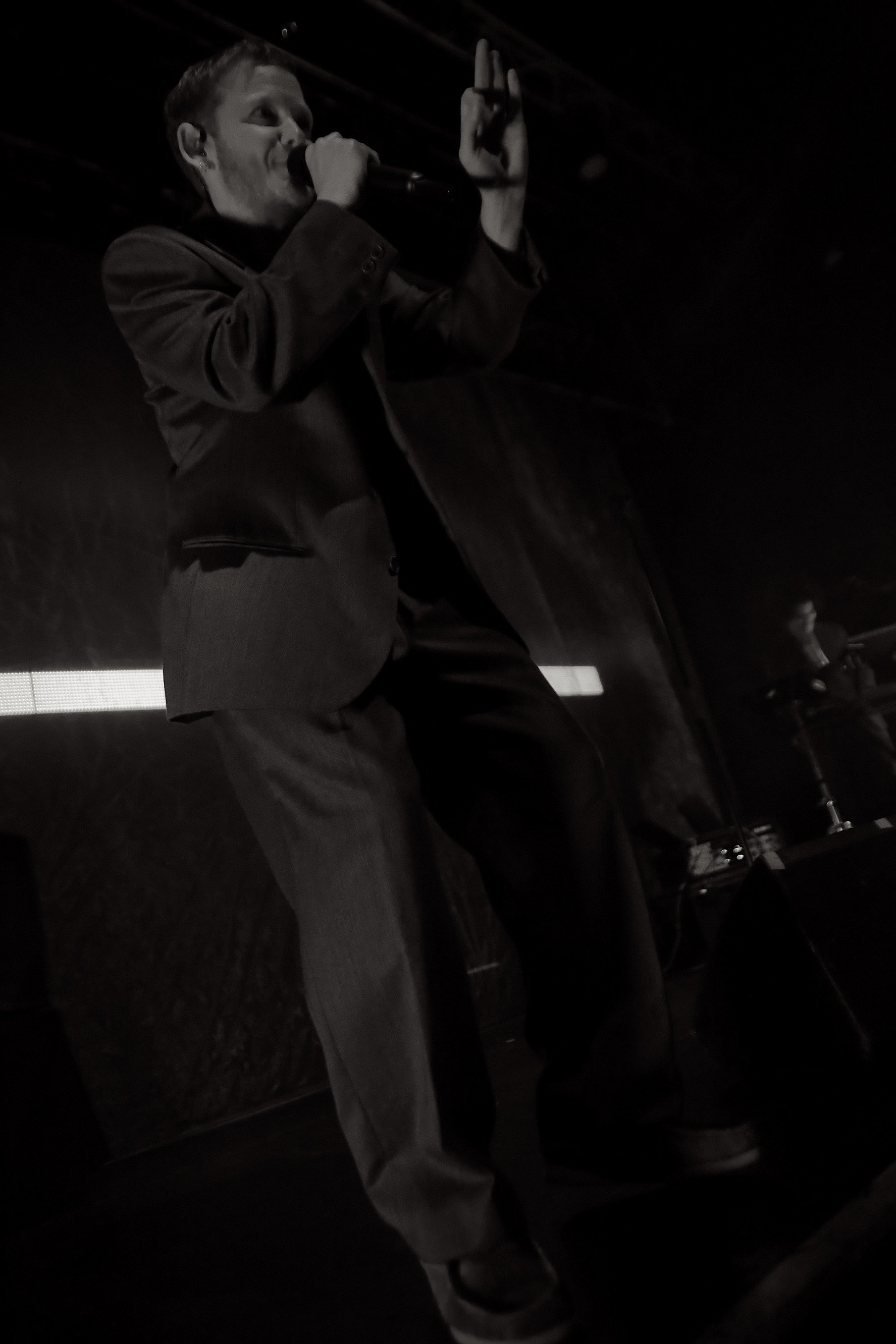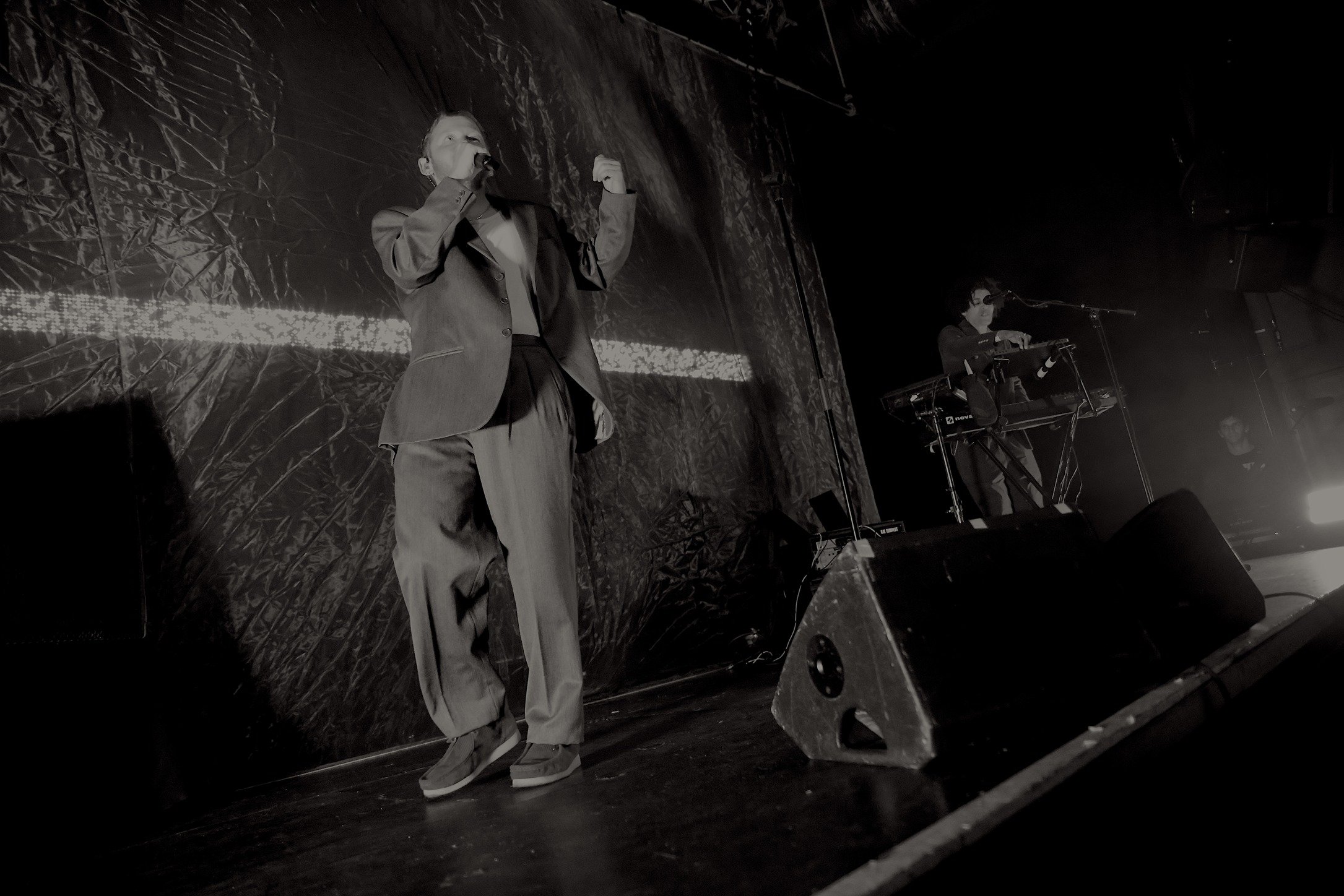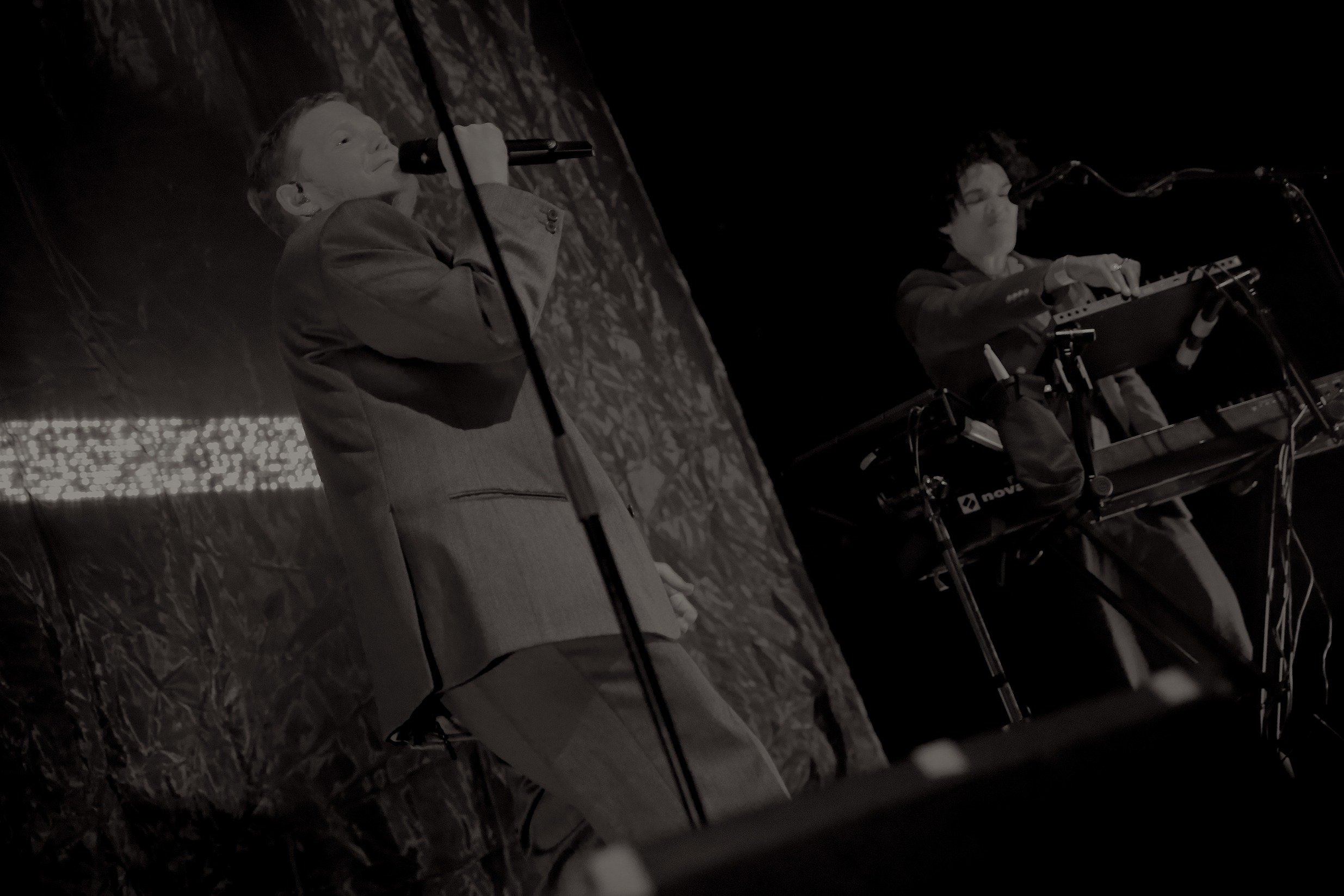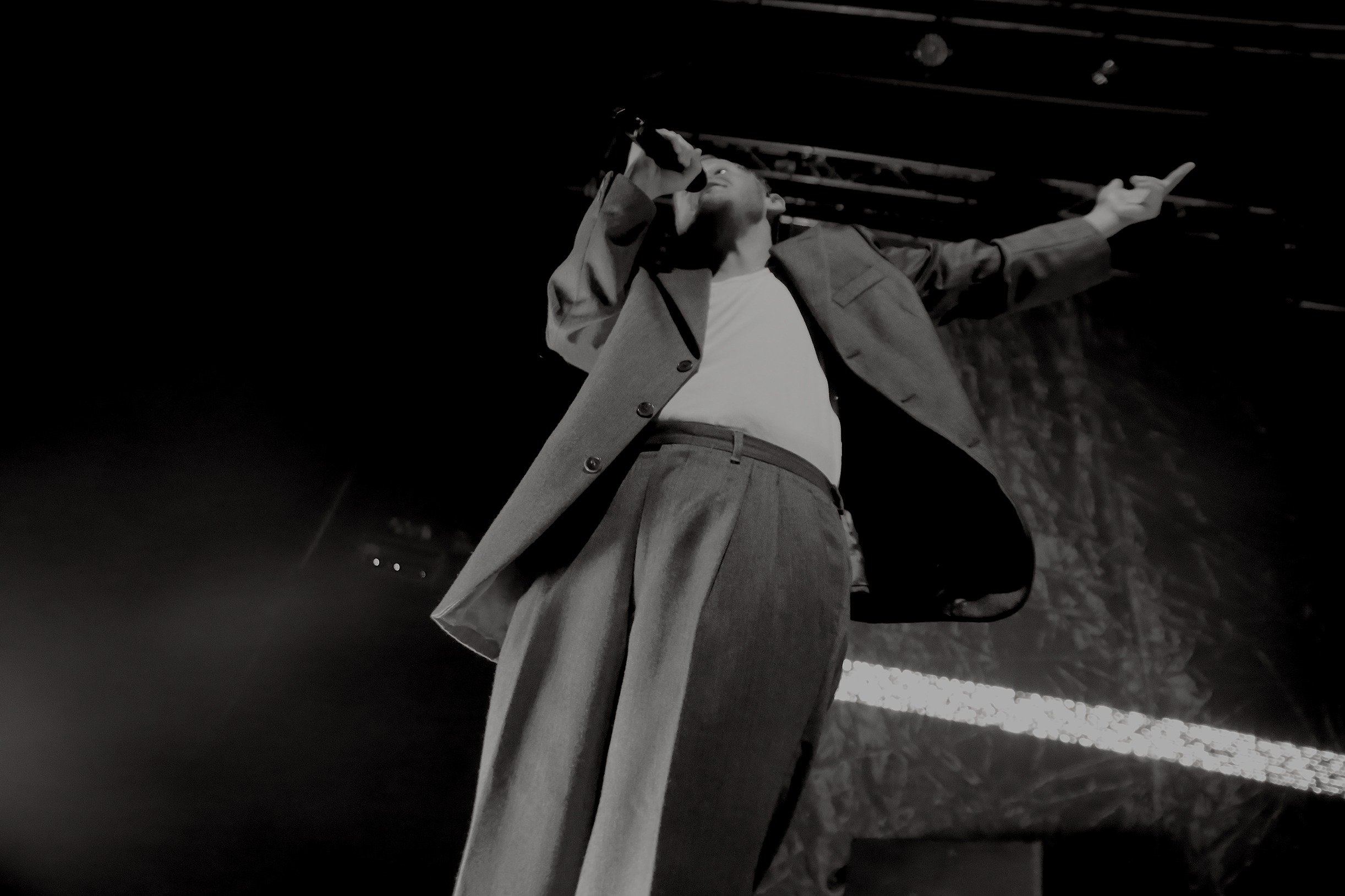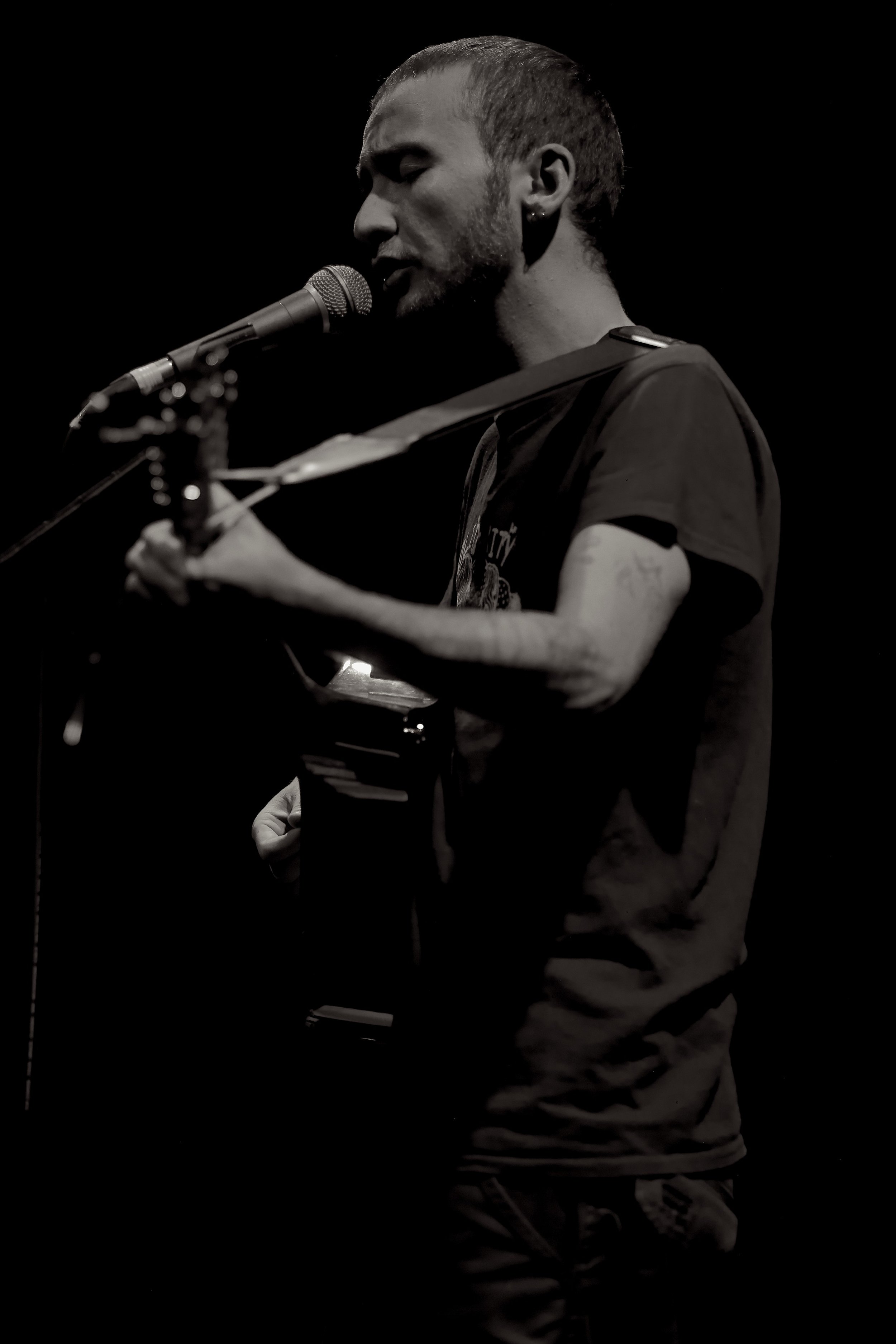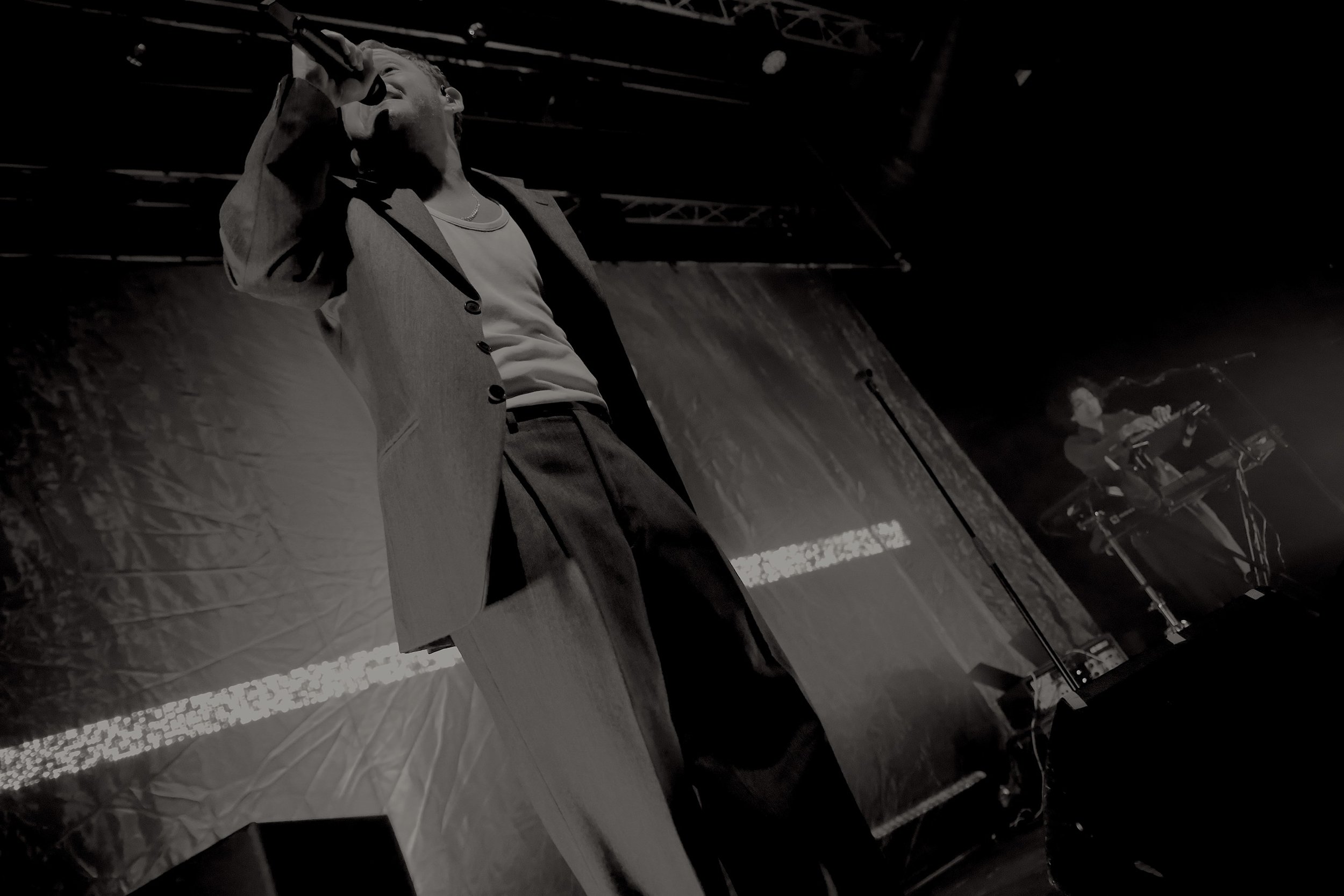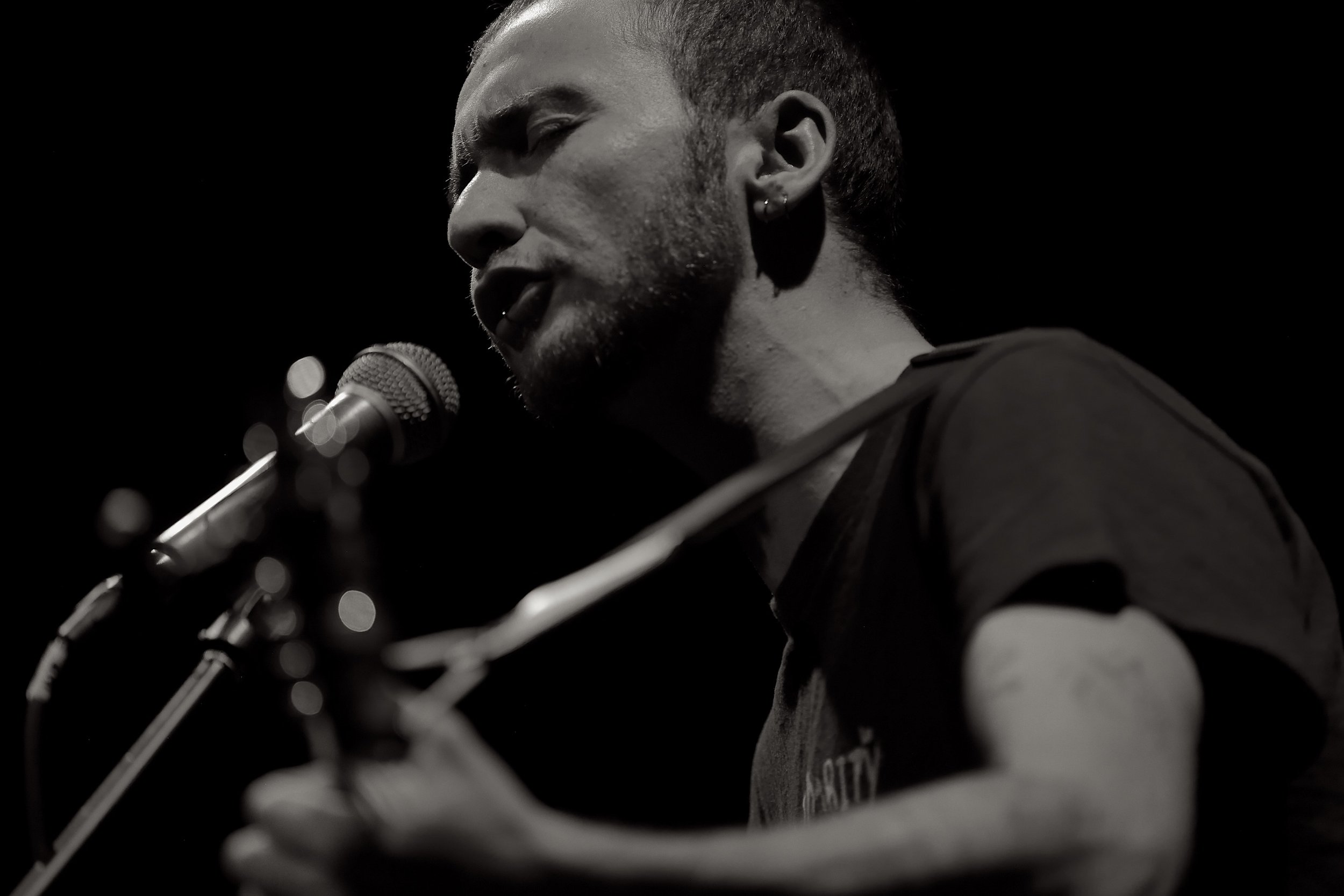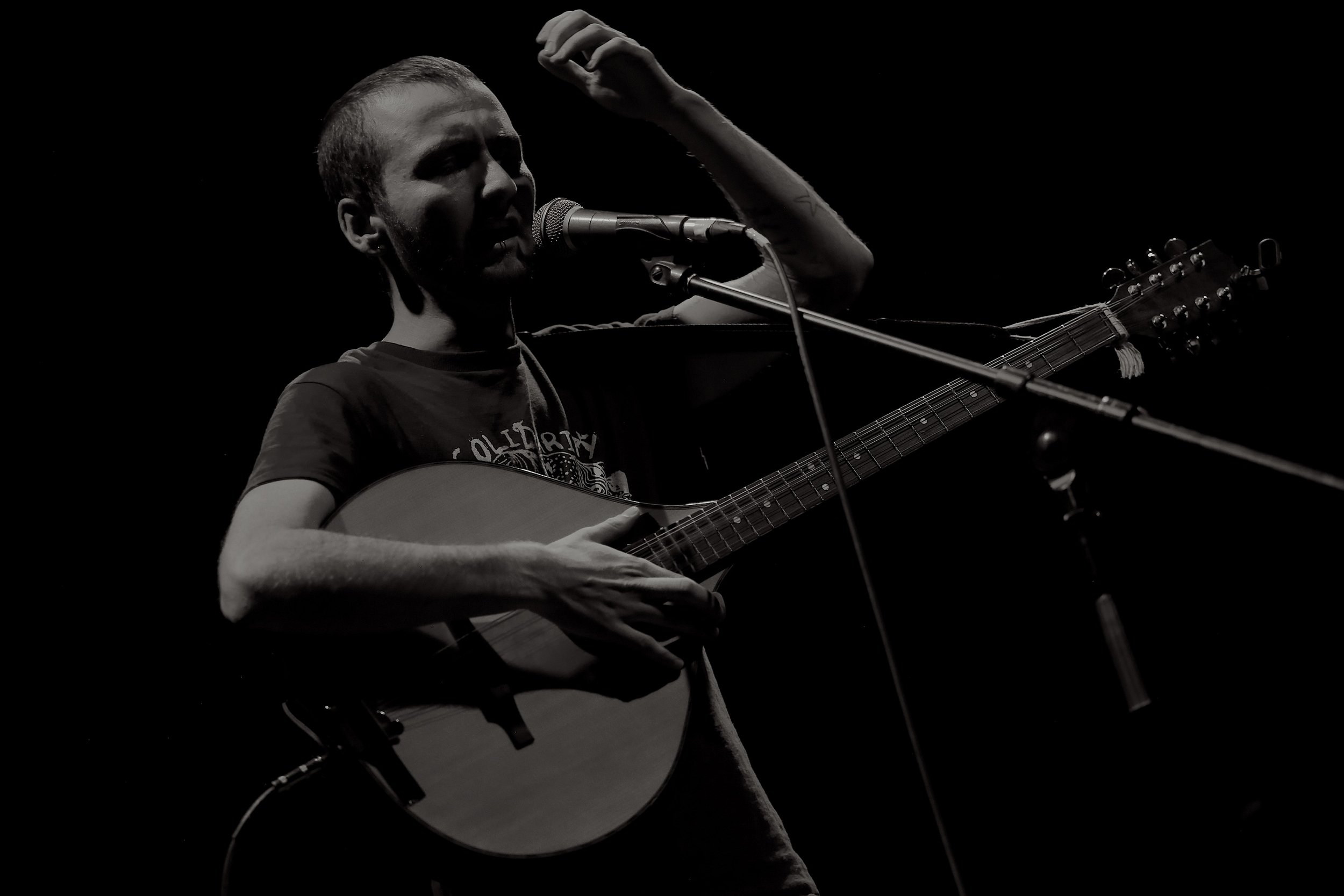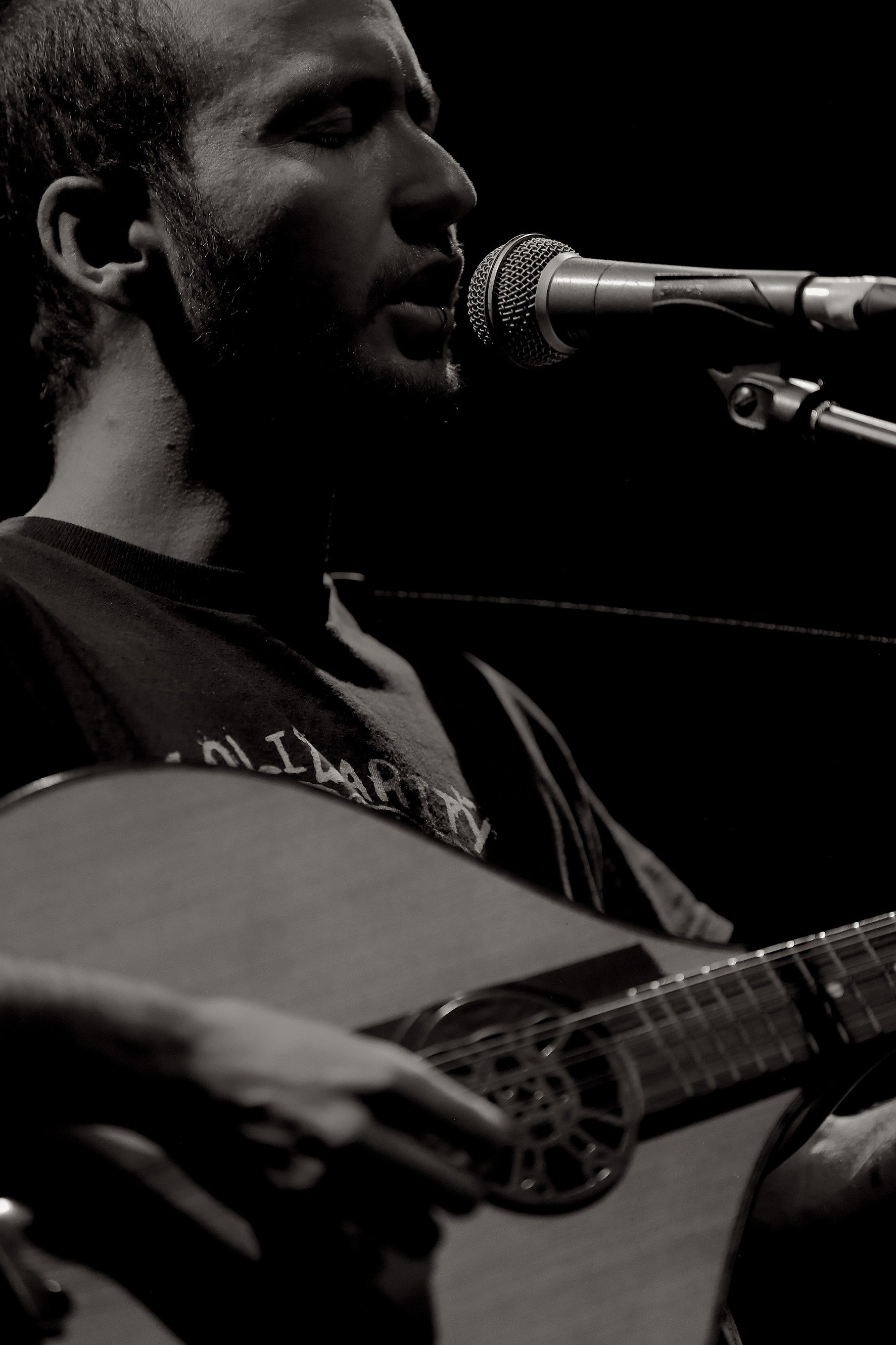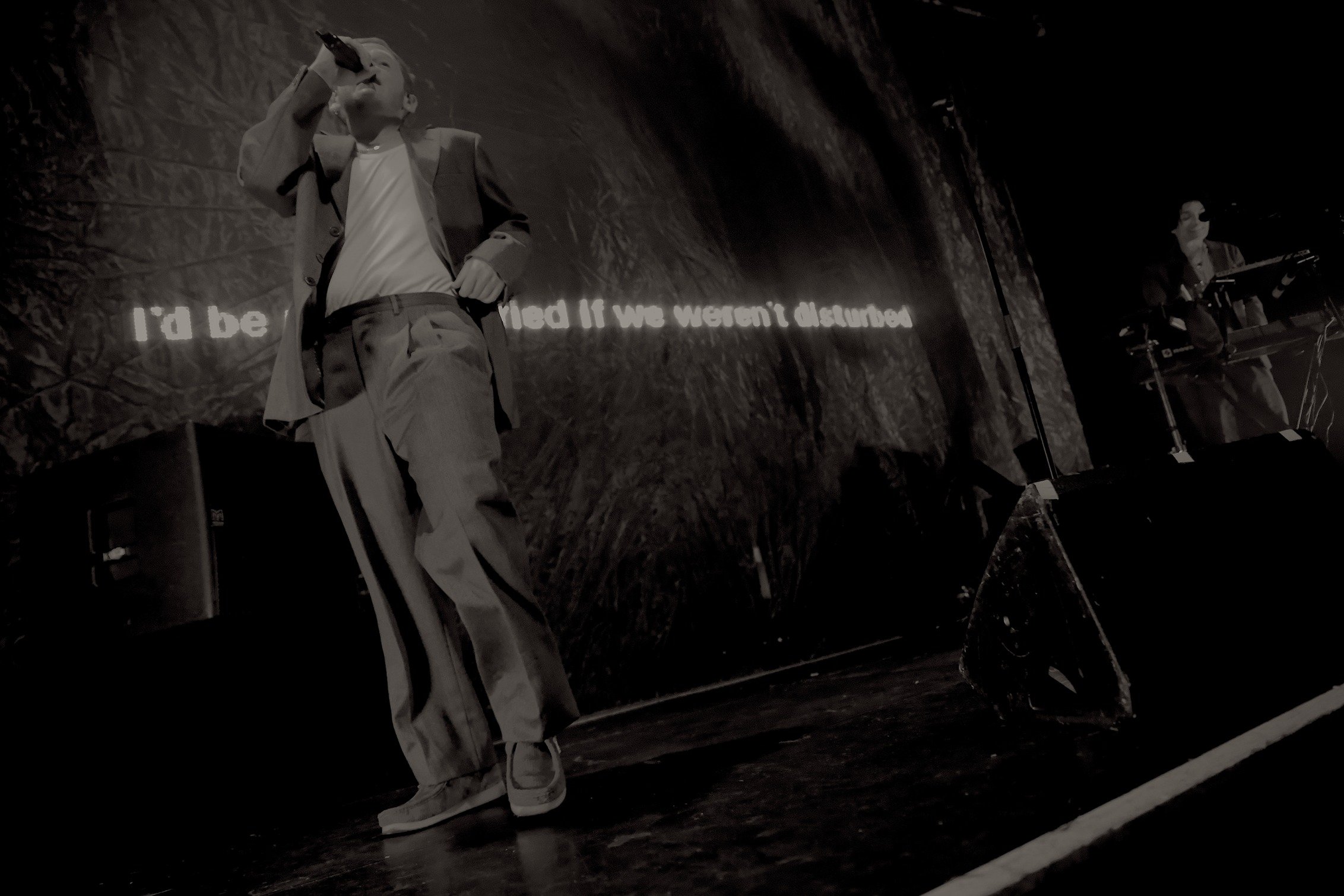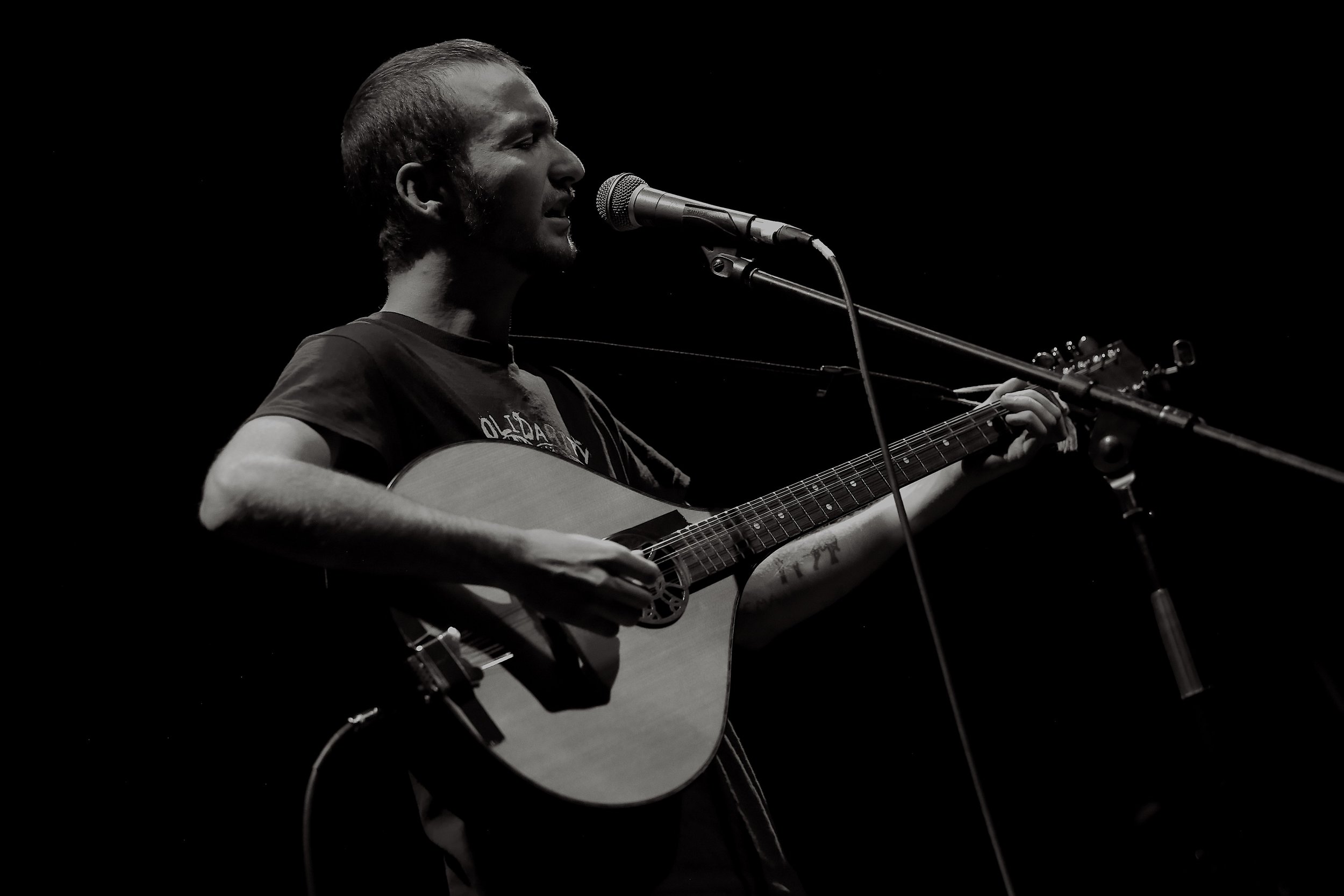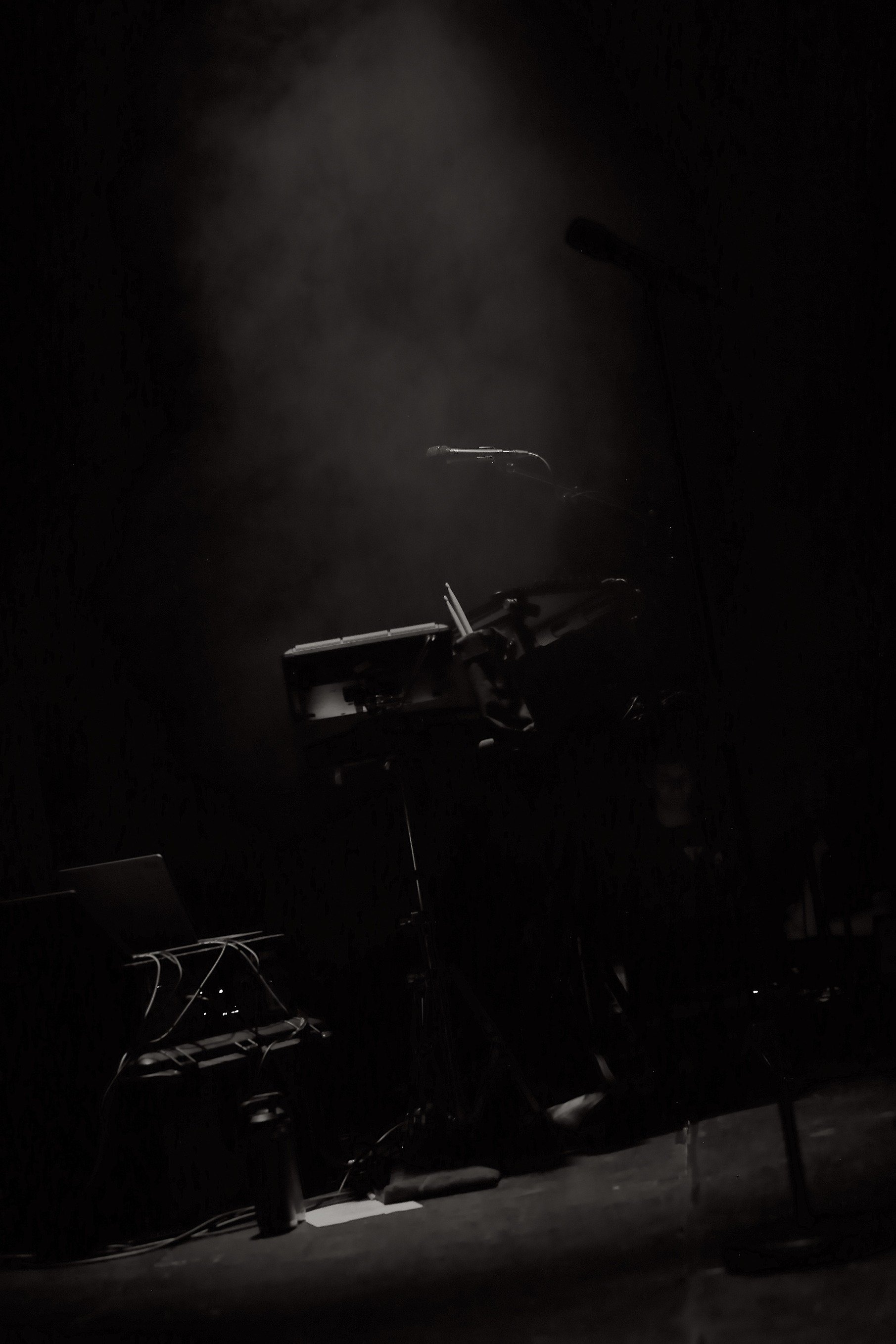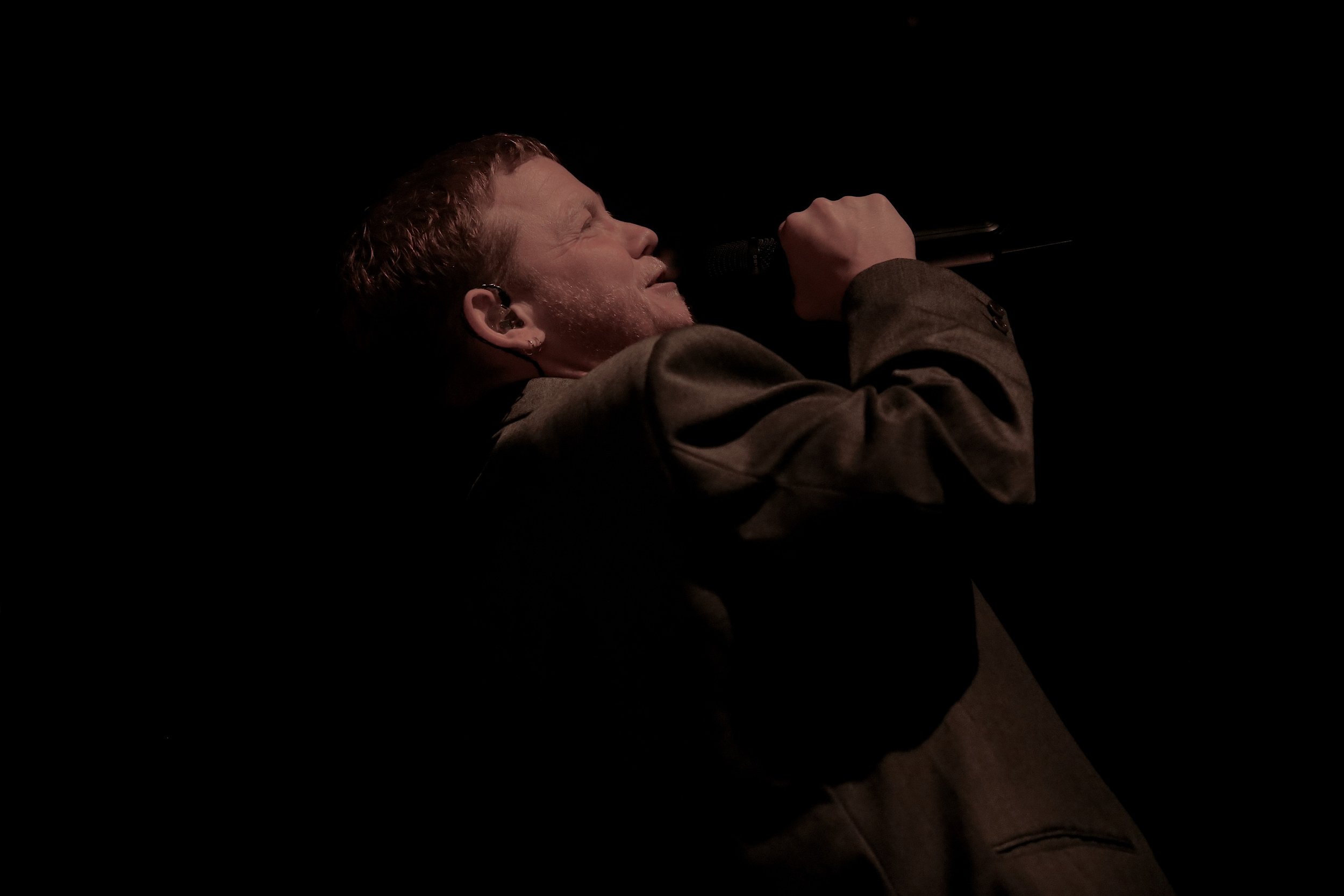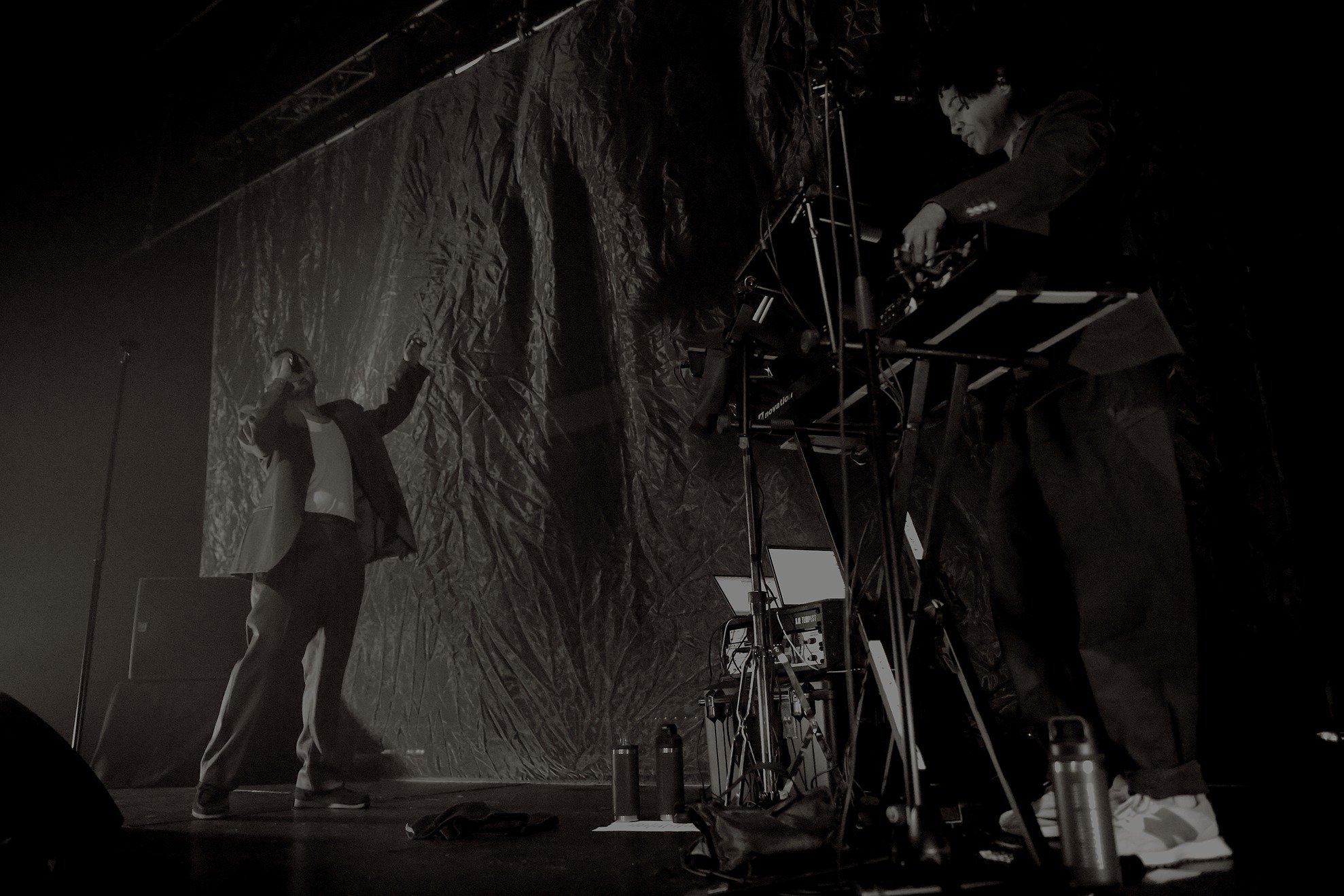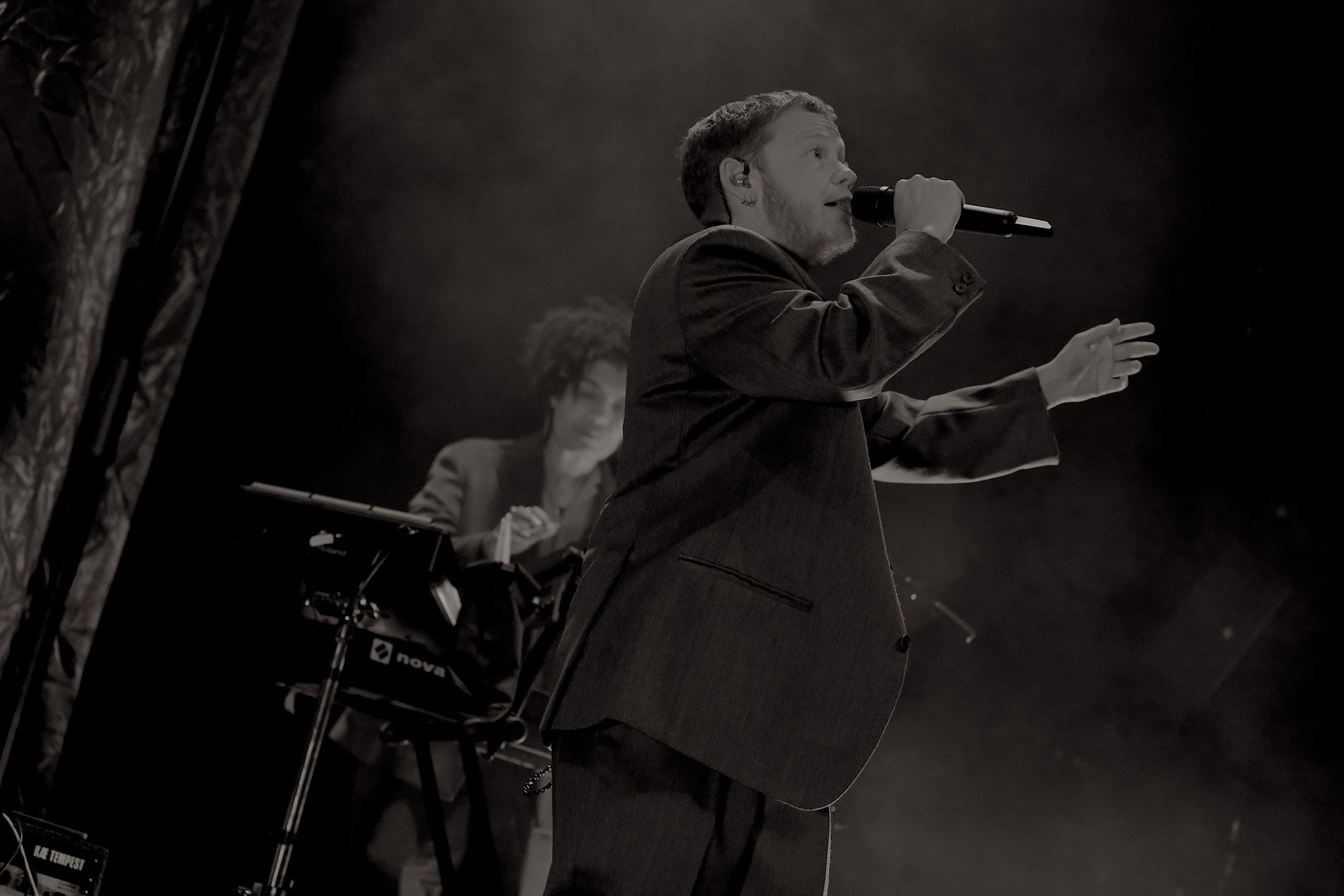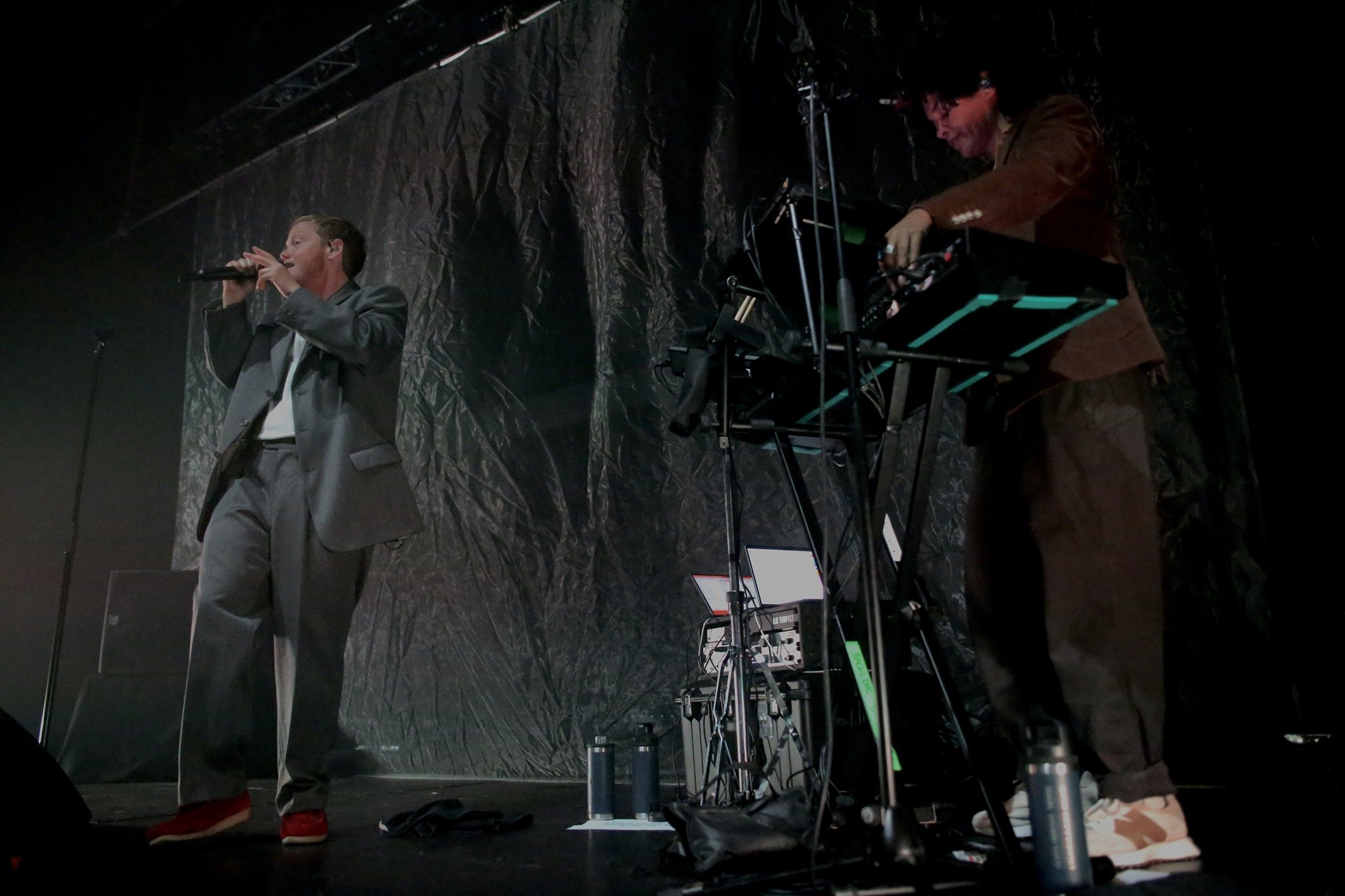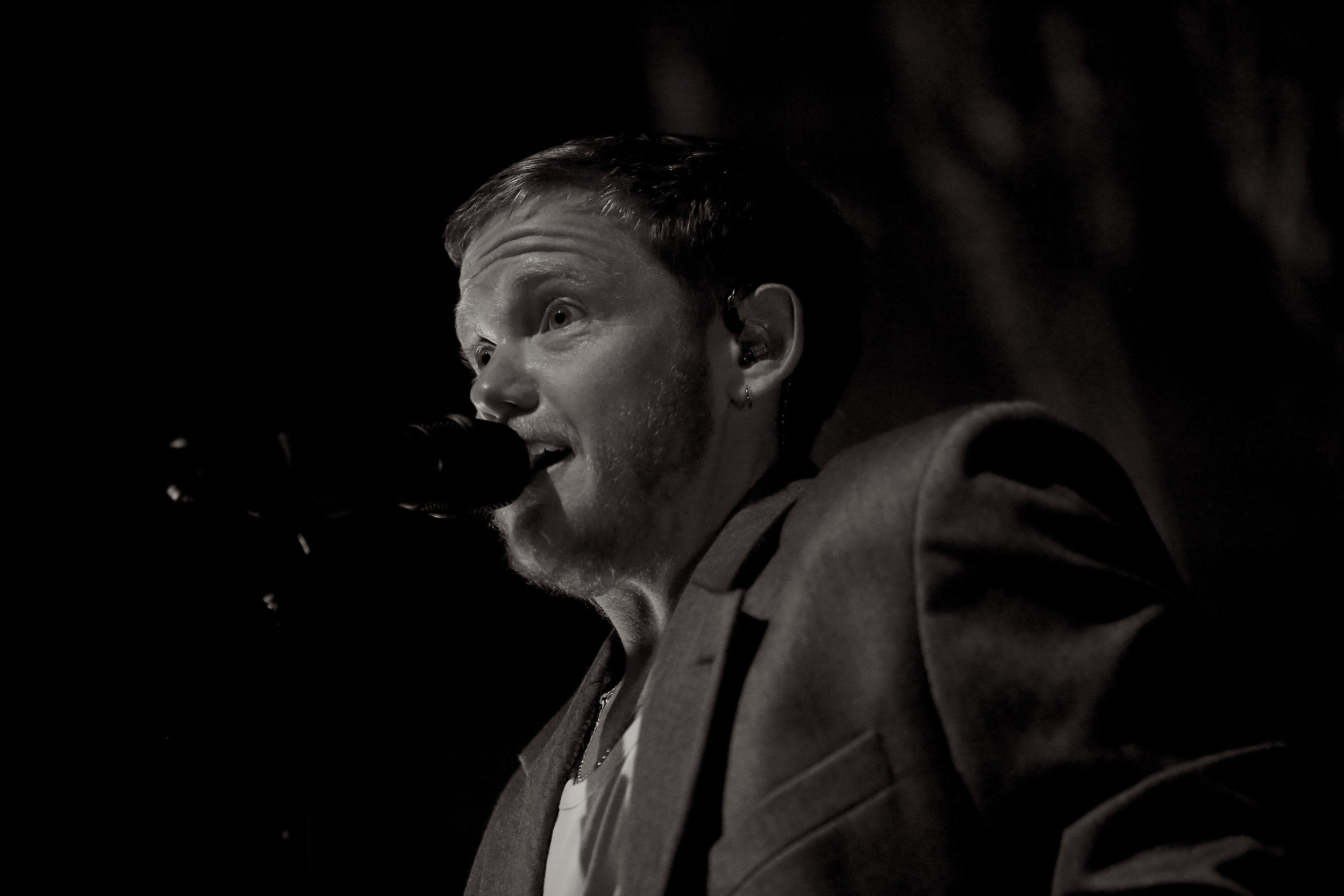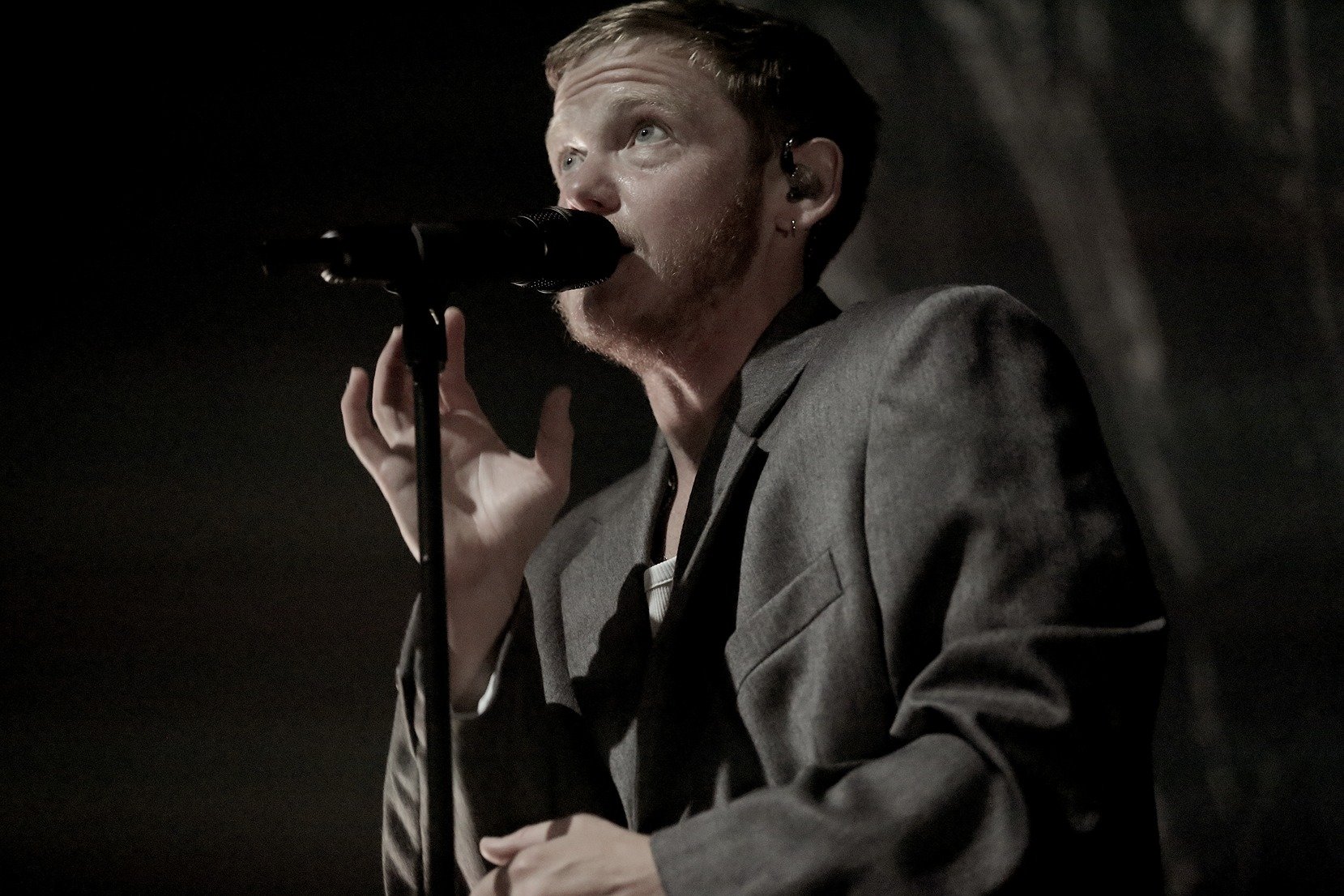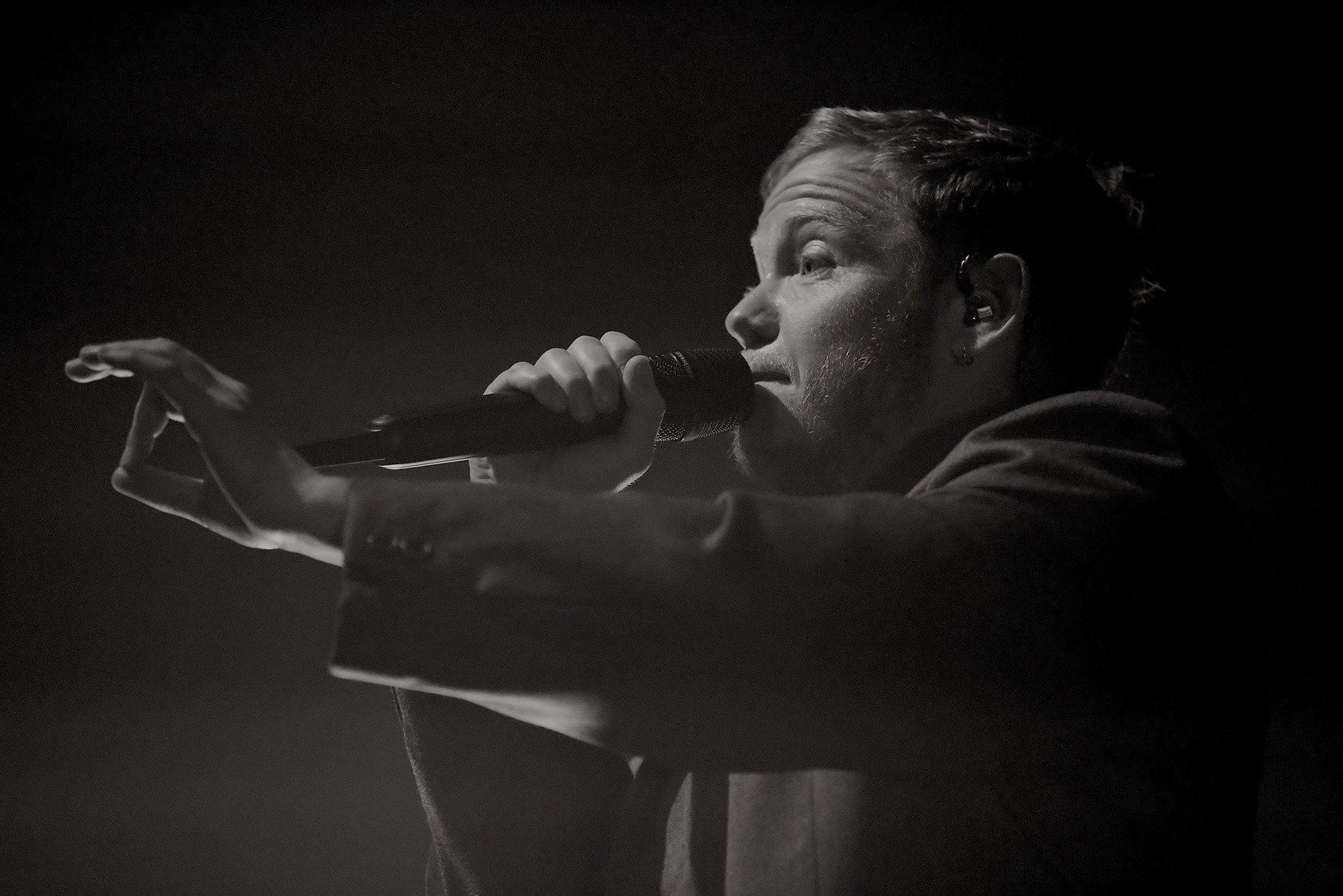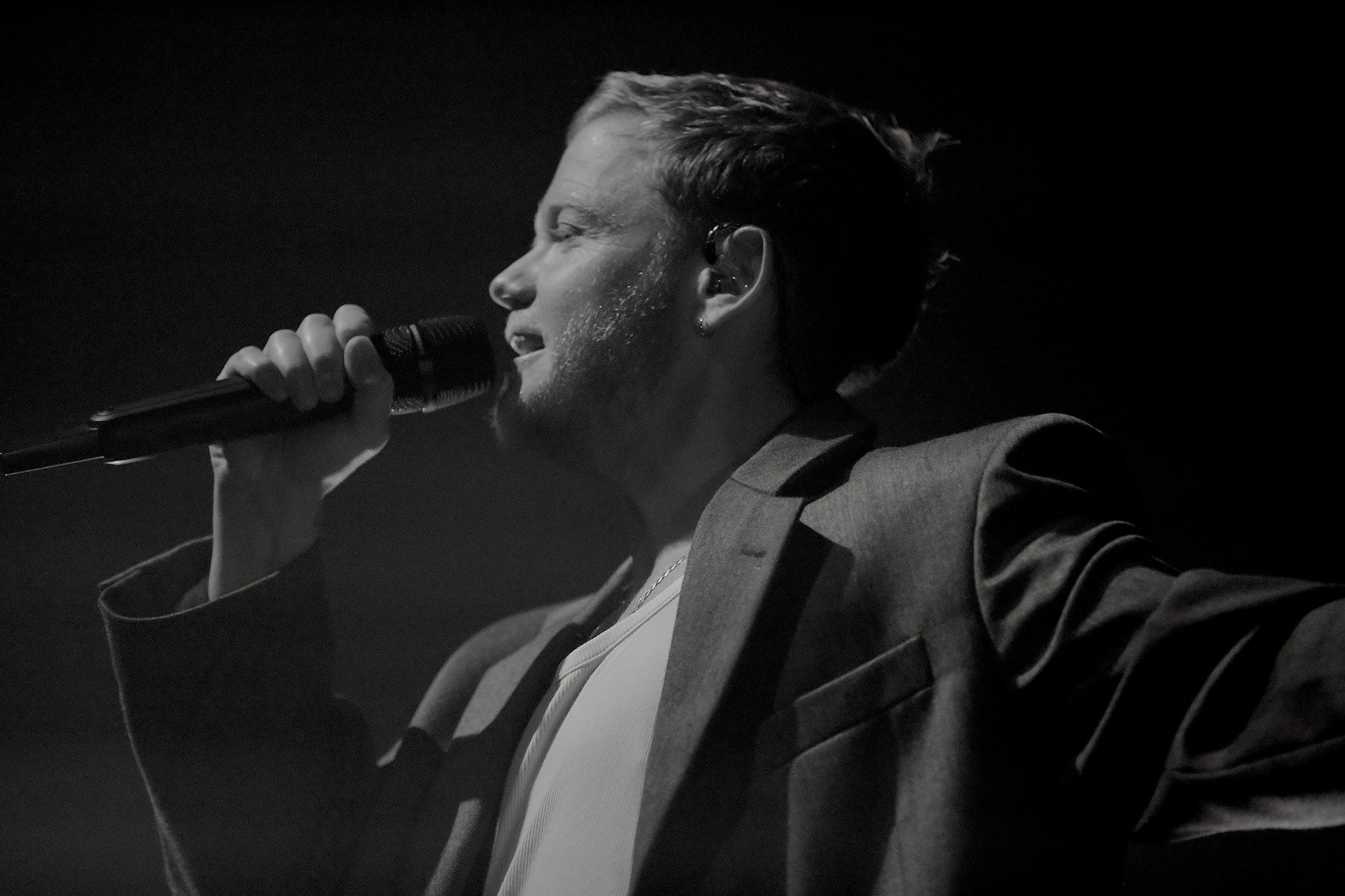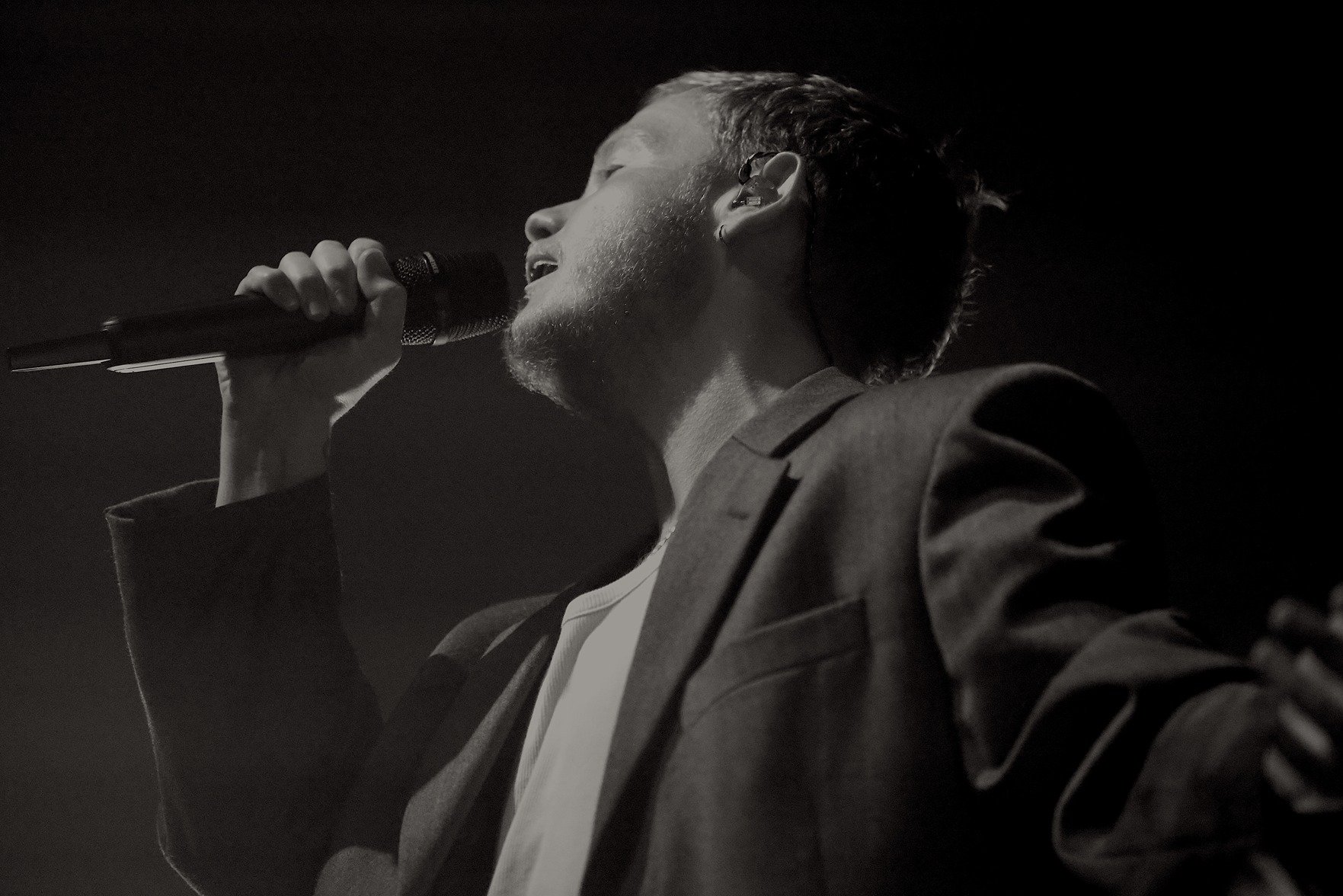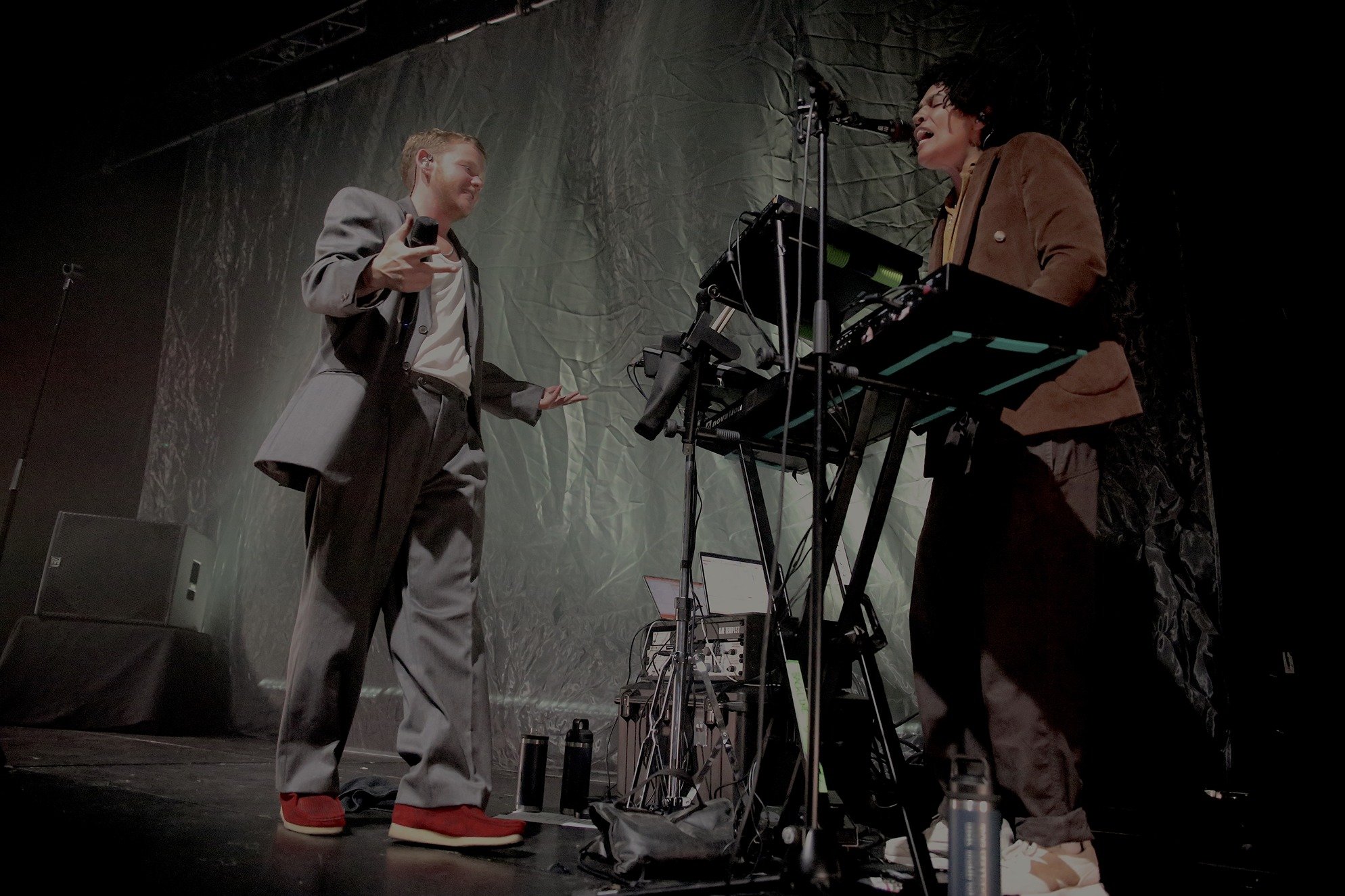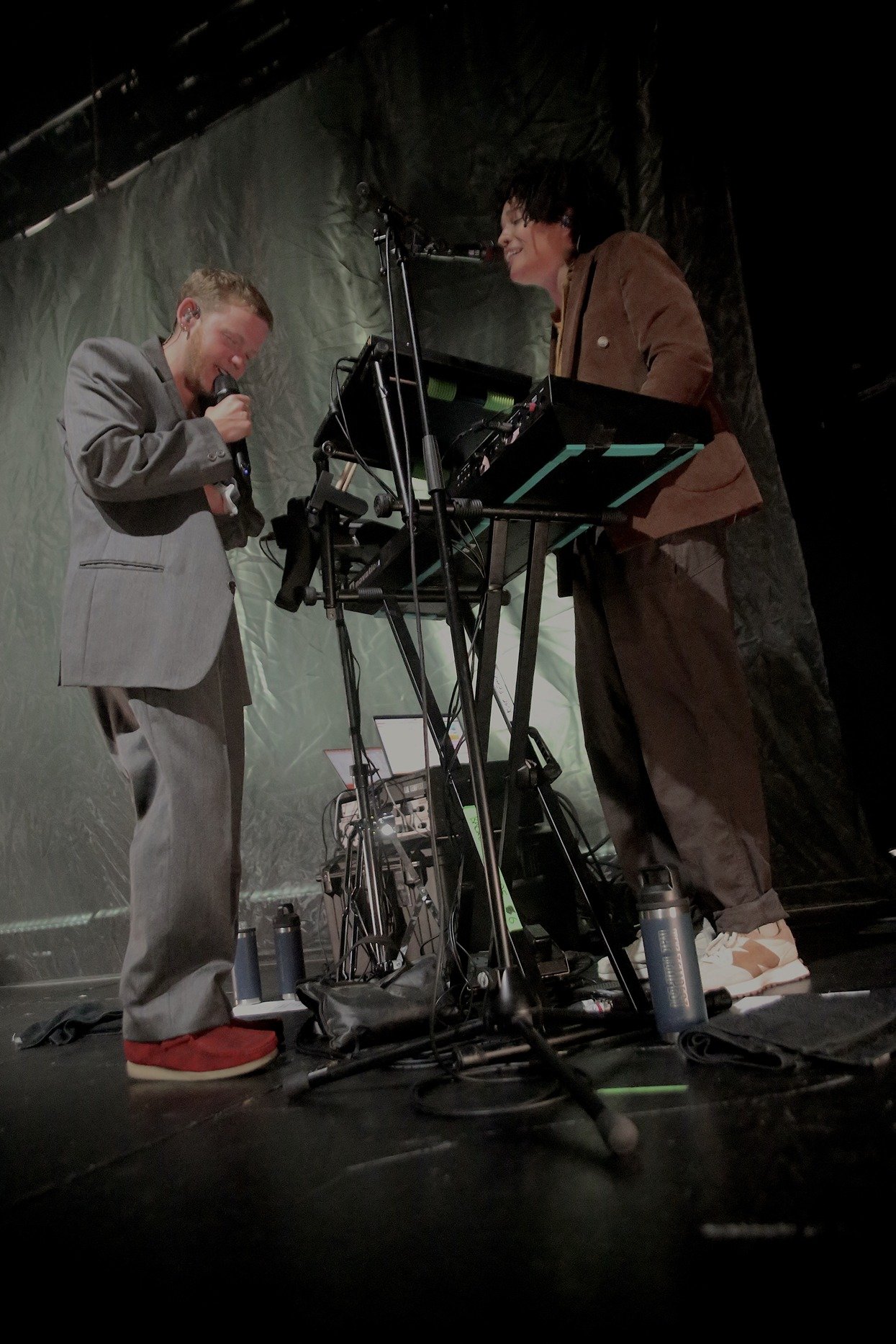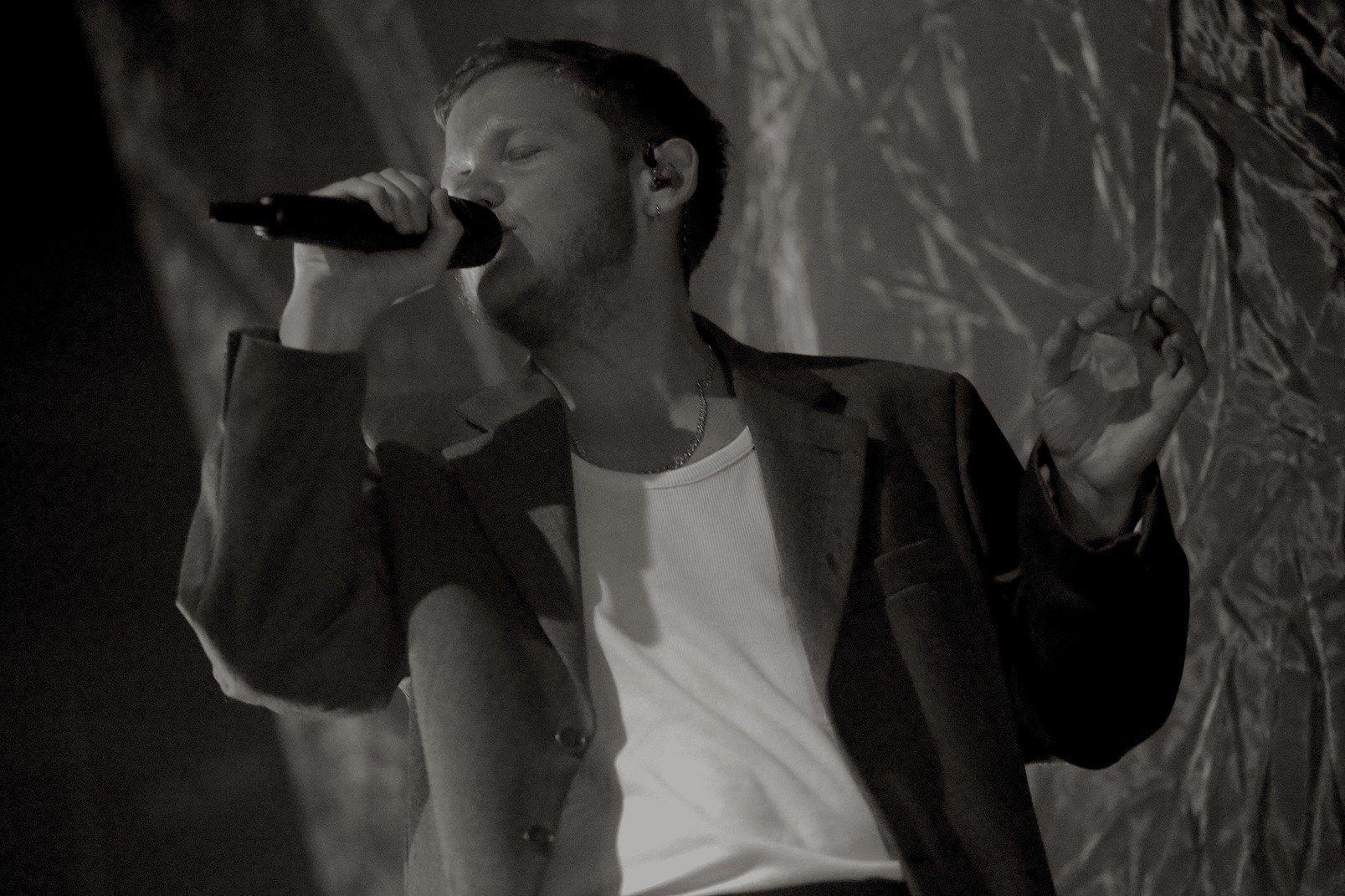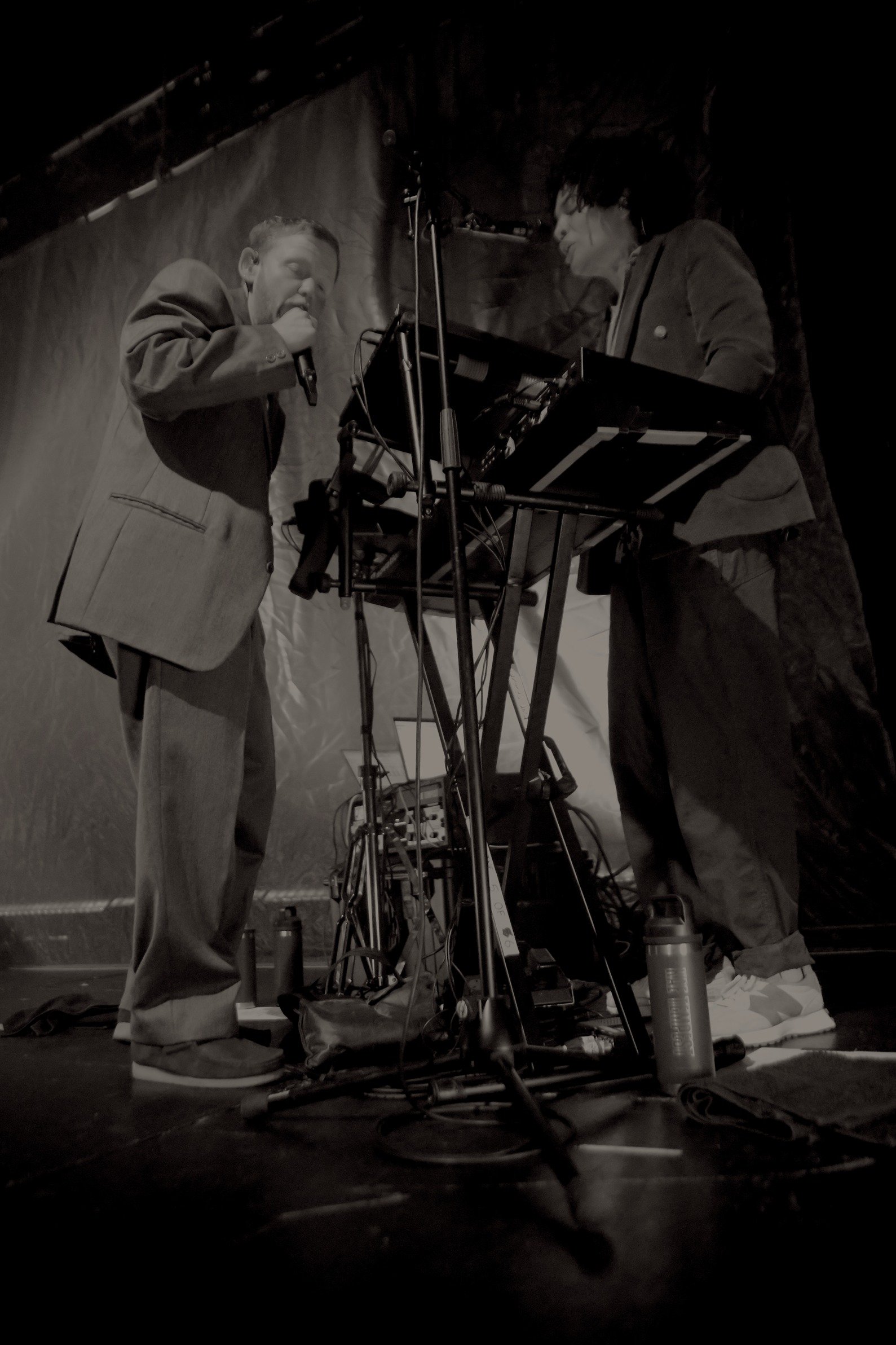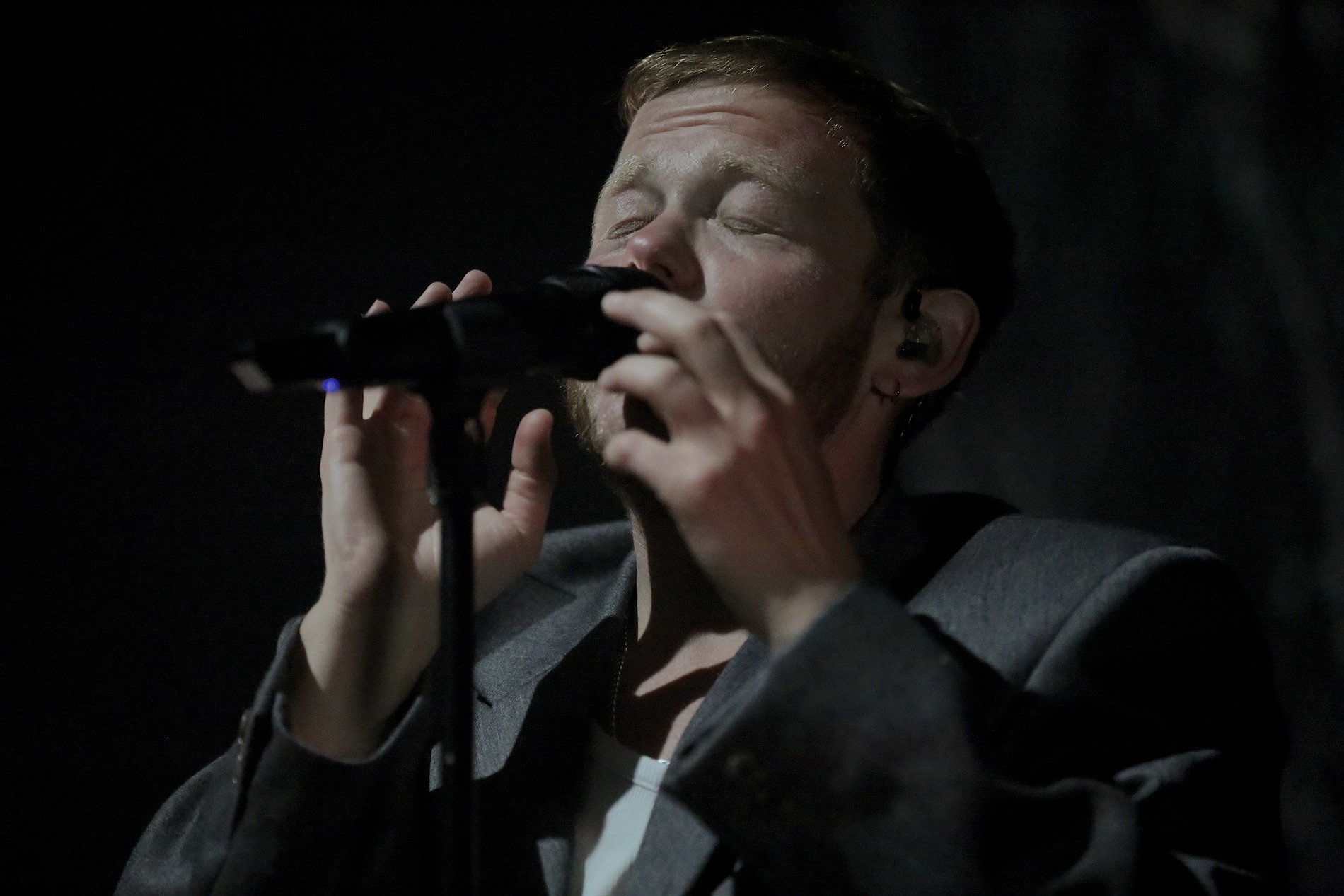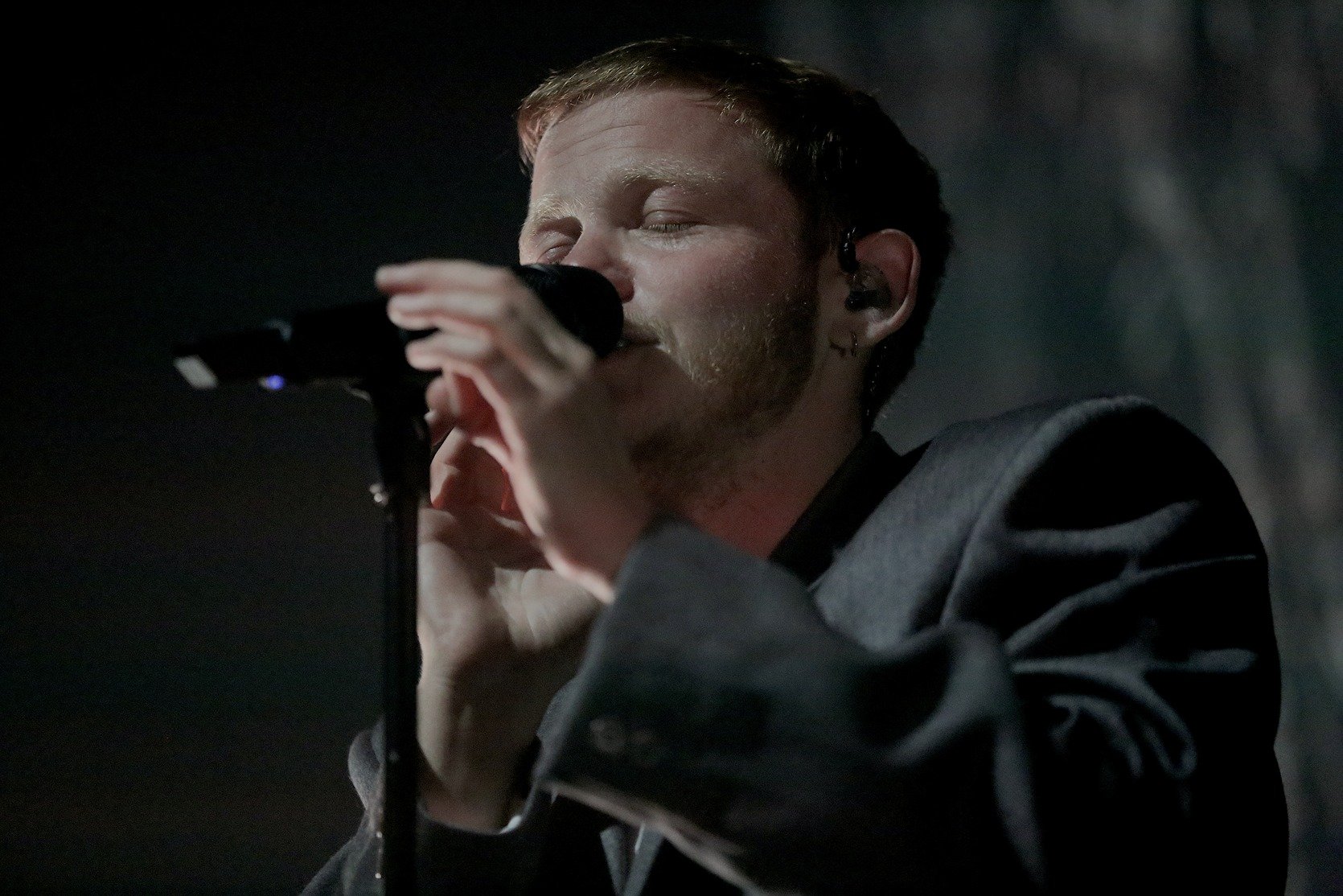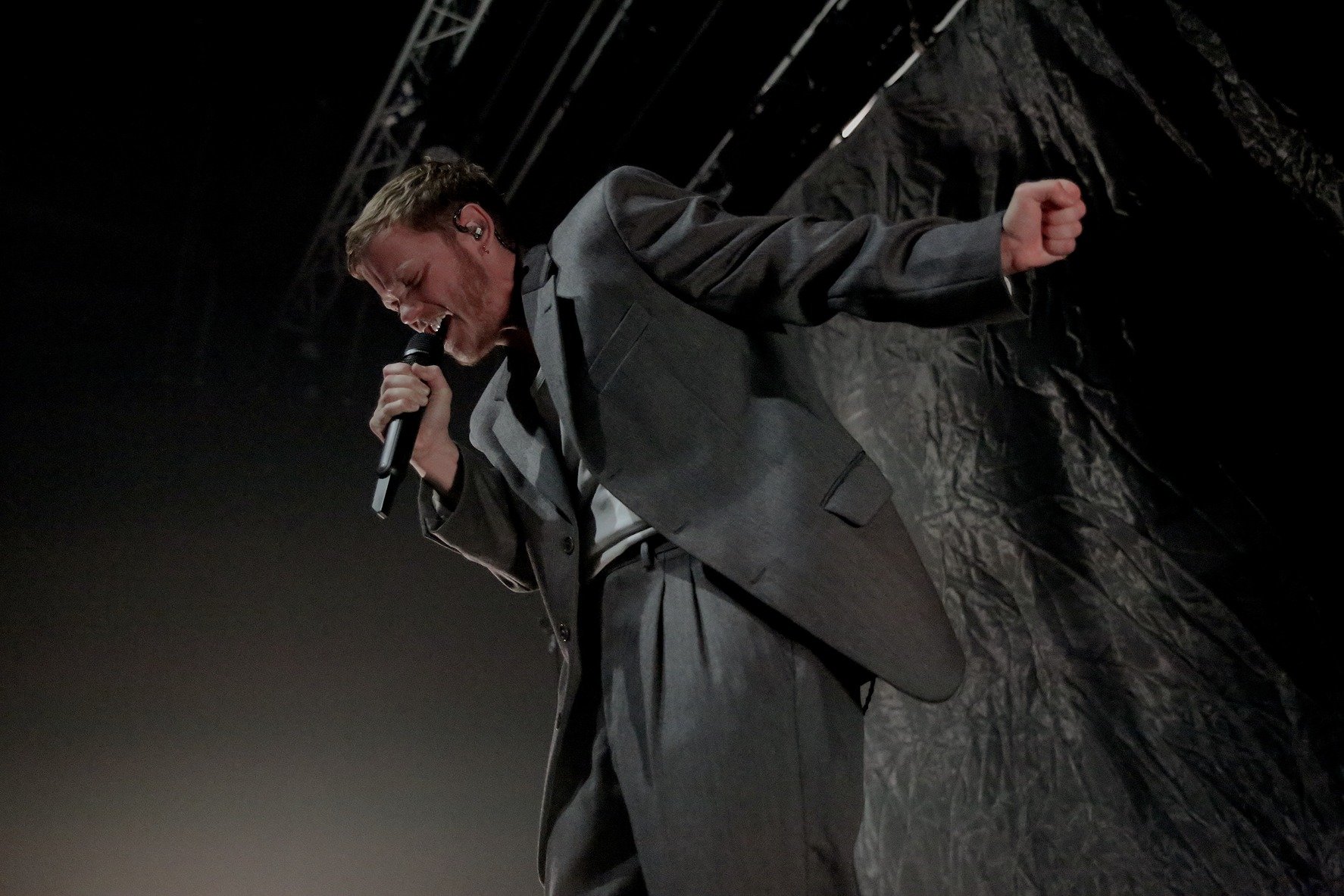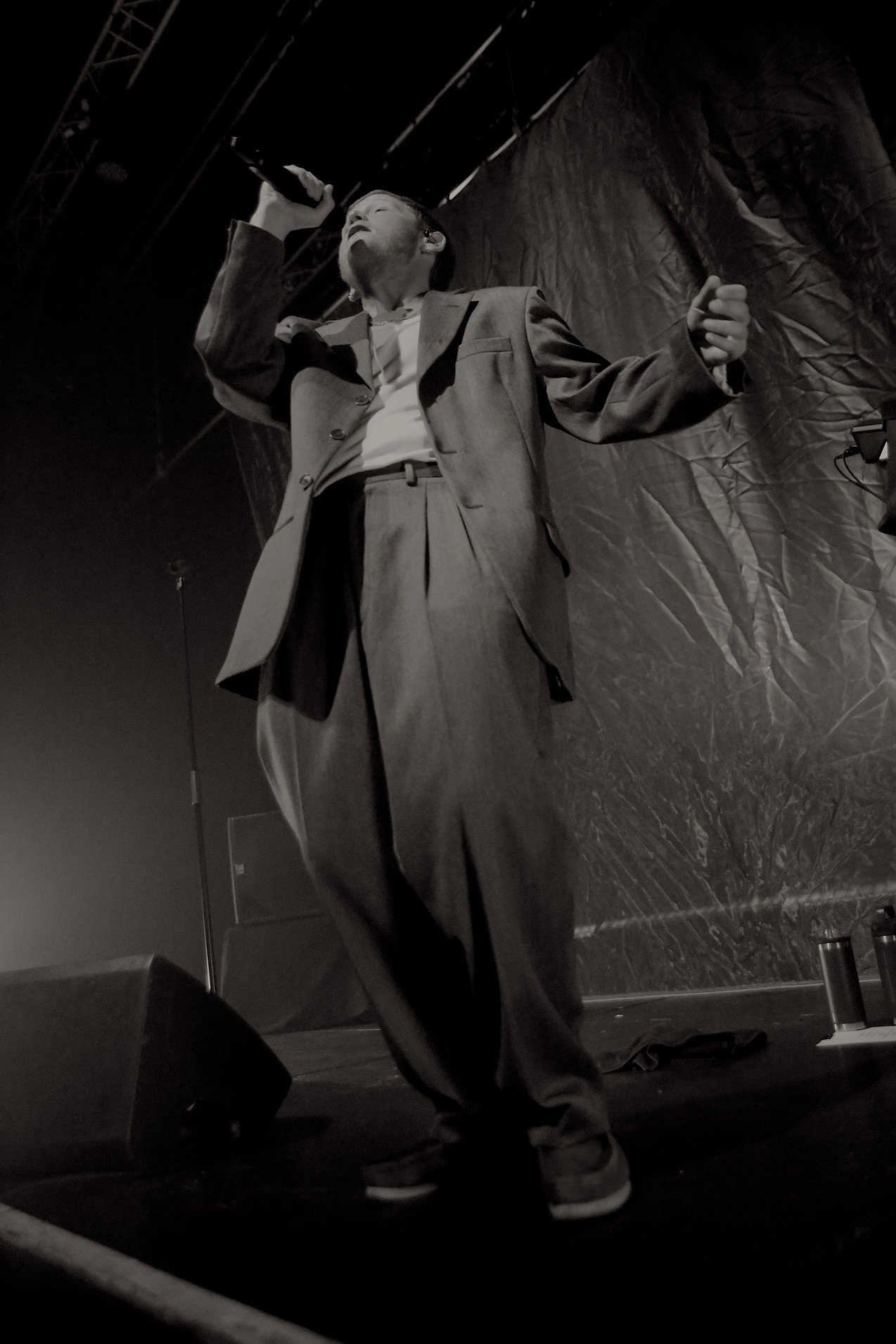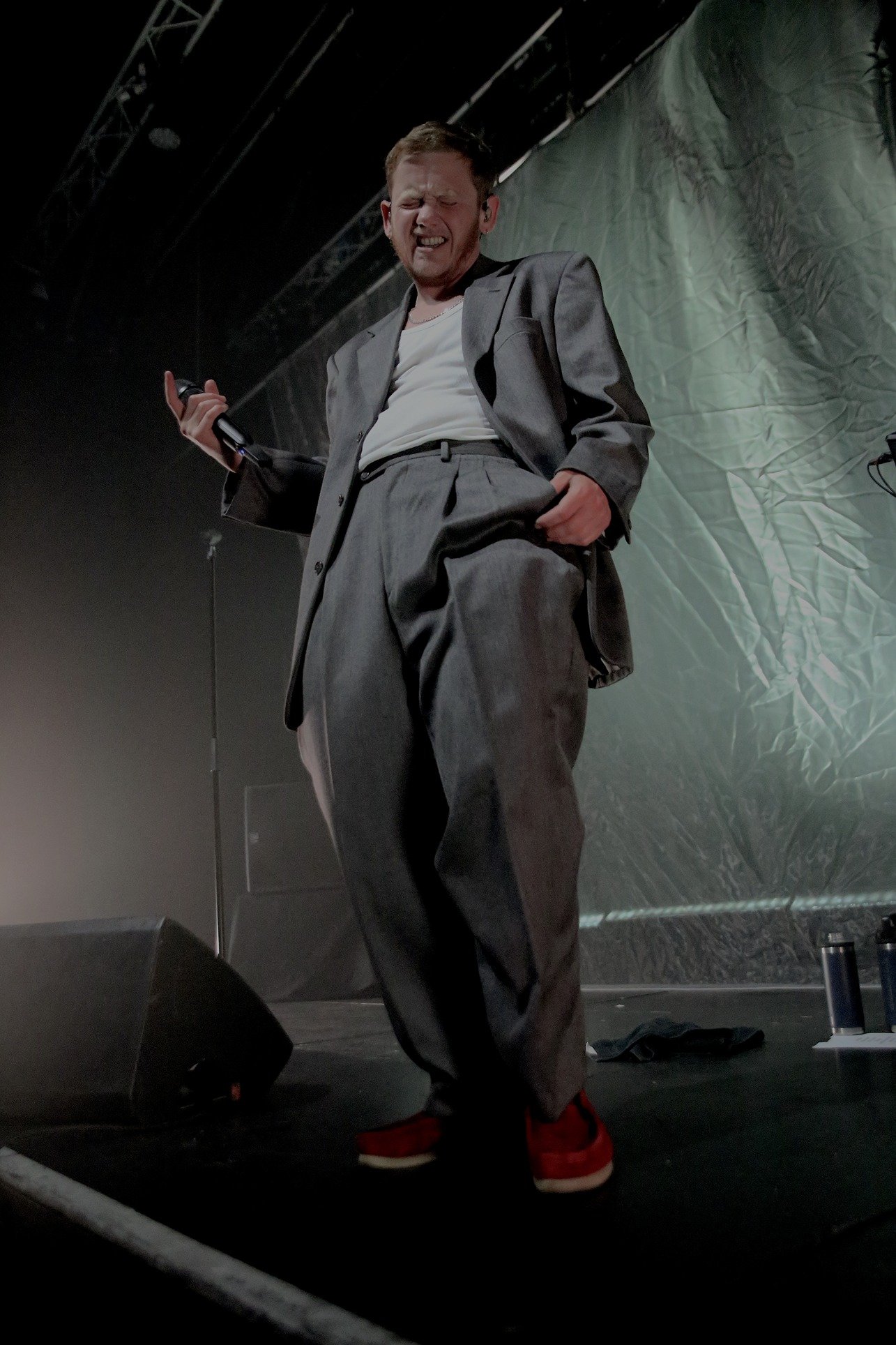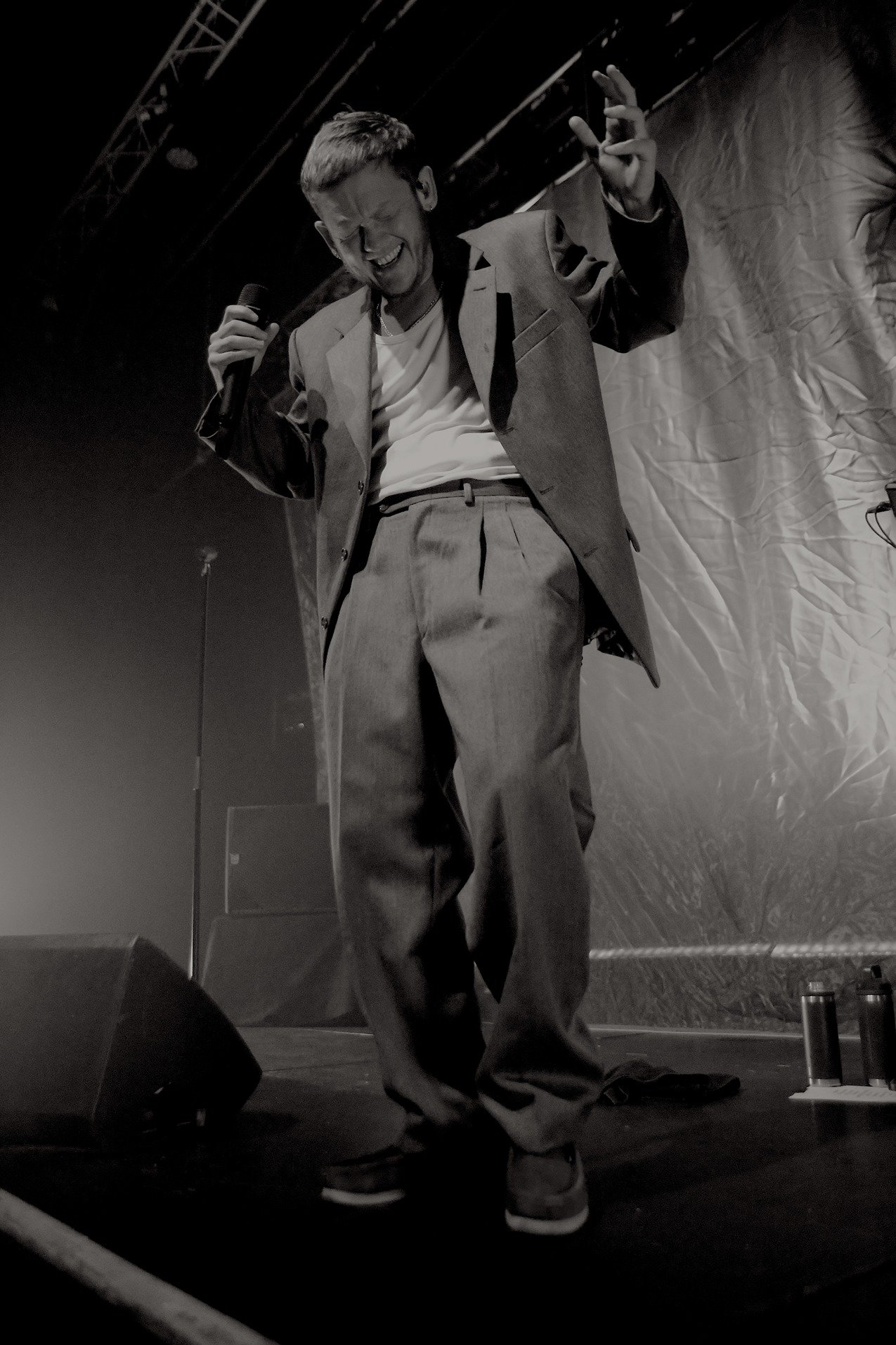Backstage, nerves buzzed as KAE TEMPEST’s tour manager confessed to pre-Glastonbury butterflies—three slots in three days (Greenpeace Stage, Shangri-La, Park Stage) looming large. That edge, however, only sharpened what transpired onstage. As the lone photographer in the pit, I braced for something special.
Opening the night, PIGLET—a trans Belfast-via-Sheffield musician—wove bouzouki riffs between urgent pleas for Palestinian solidarity. Tuning stops became opportunities to unpack his hopes, fears and dreams, each song landing with warmth. His EP For Frank Forever closed the set, having already won over Exeter’s full house despite a missing merch table.
Taking the stage with his multi-tasking keyboardist/percussionist/backing vocalist, Kae cut a striking figure in grey suit and bright red corduroy Wallabees—a style statement that screamed “join me” from the first beat. What followed was a fusion of rap, spoken word and live music that felt like both a sermon and a street protest.
20 minutes into the set, the jacket was off, vest revealed, but it was the raw intensity—with arms outstretched on the lip of the stage, soaking in a sold-out crowd’s devotion—that spoke volumes. Gospel-tinged chords met pulsing electro-beats, layering beneath Kae’s rasping delivery. It was a hypnotic counterpoint to the chaos of modern life, each lyric a lifeline. Beyond a few synth racks, the staging was bare. Yet the sound built from whisper to roar, creating an immersive journey without a single needless flourish.
Highlights from the set for me included “No Prizes / Lion-Mouth” blew open the night with defiant swagger, “Perfect Coffee” and “Move” showcased Tempest’s knack for marrying personal truth with universal groove and “Know Yourself,” a new song from his forthcoming album Self Titled (out 4 July), brought the crowd to a hush before erupting in its soaring hook. Closing with a thunderous cover of George Michael’s “Freedom,” Kae turned a classic anthem into a mirror of his own path to self-liberation.
All told, Exeter Phoenix witnessed more than a performance—it was a rite of passage, a testament to Kae Tempest’s evolution from young poet on Carnaby Street to groundbreaking trans man reshaping the boundaries of live art.
